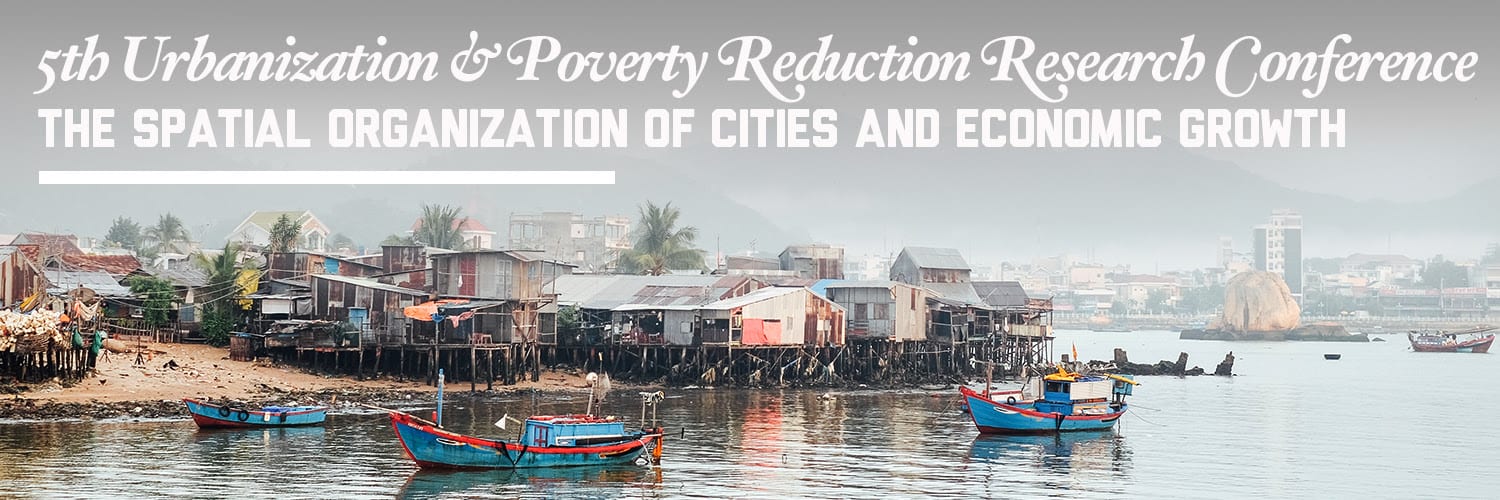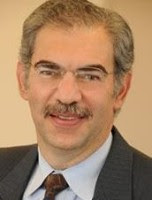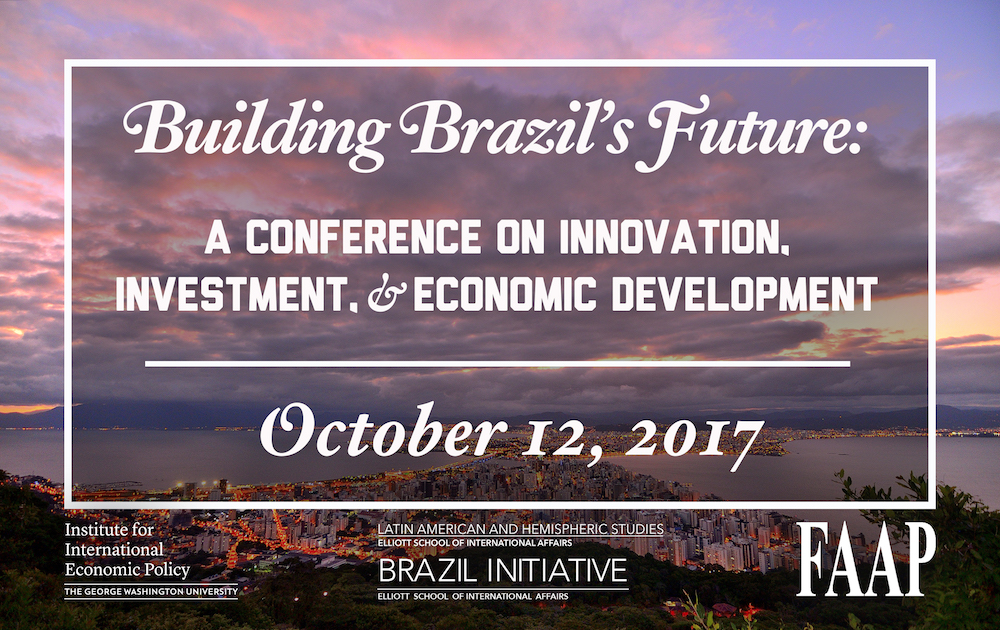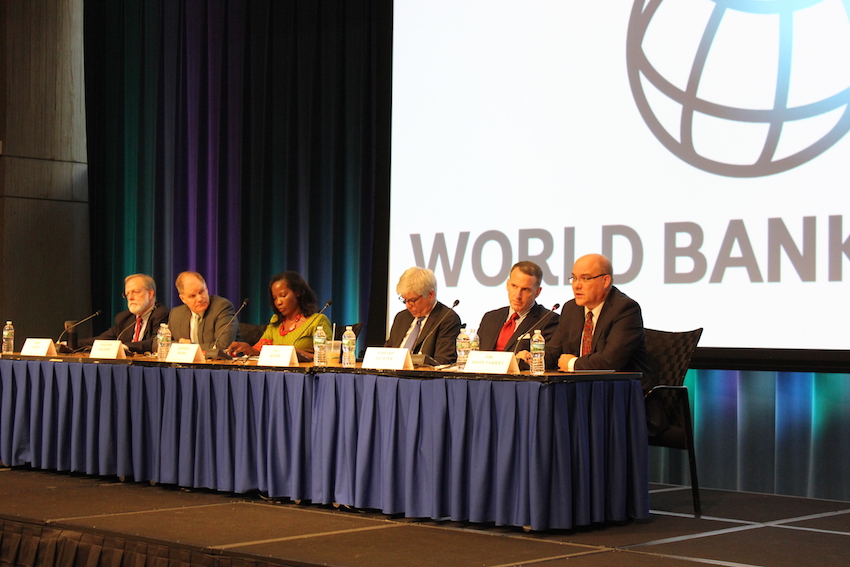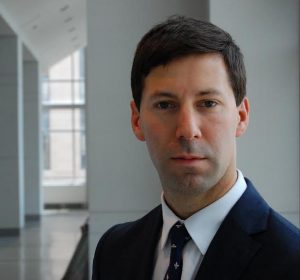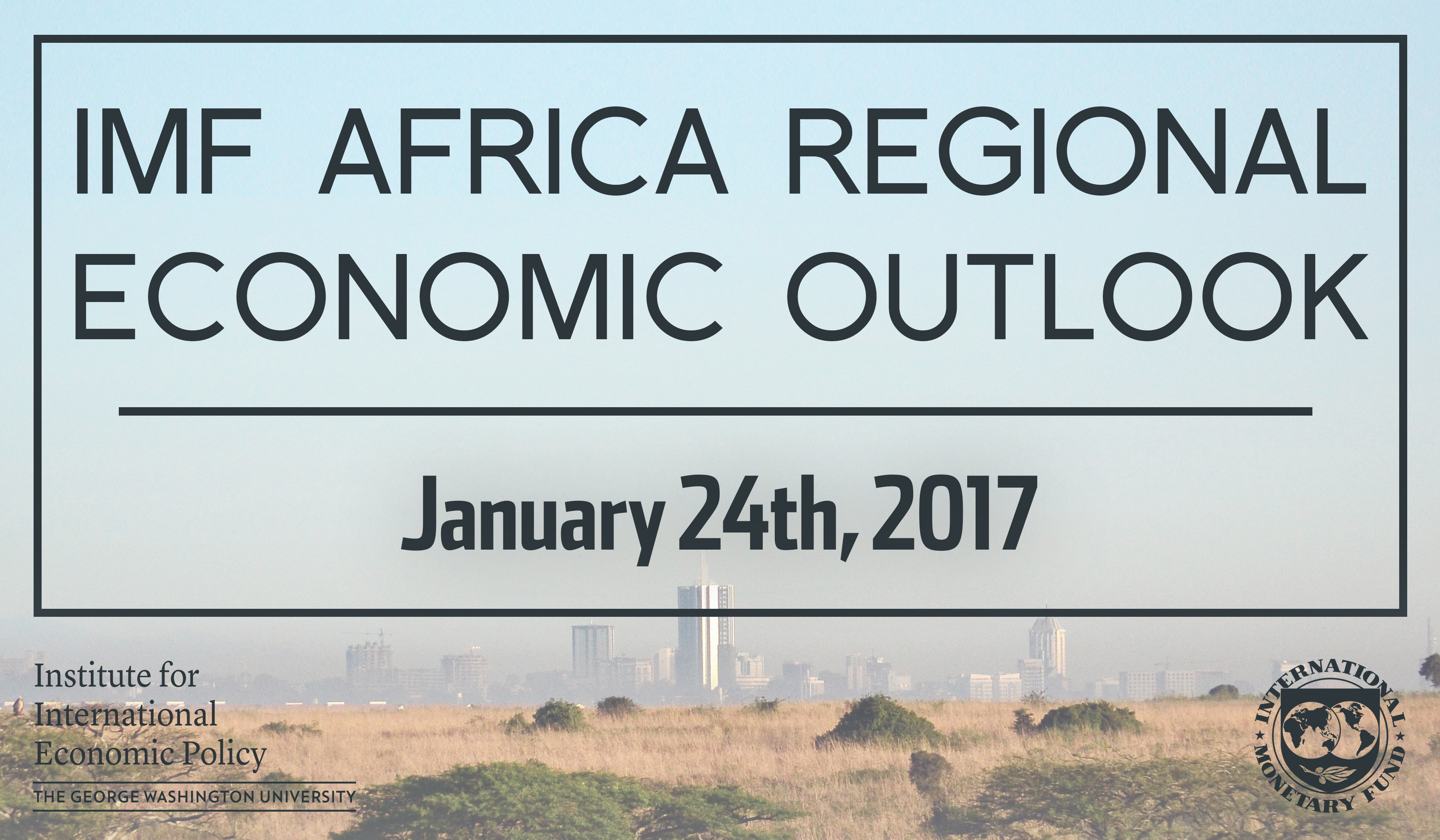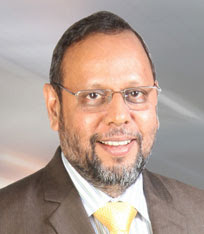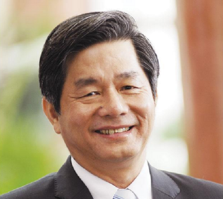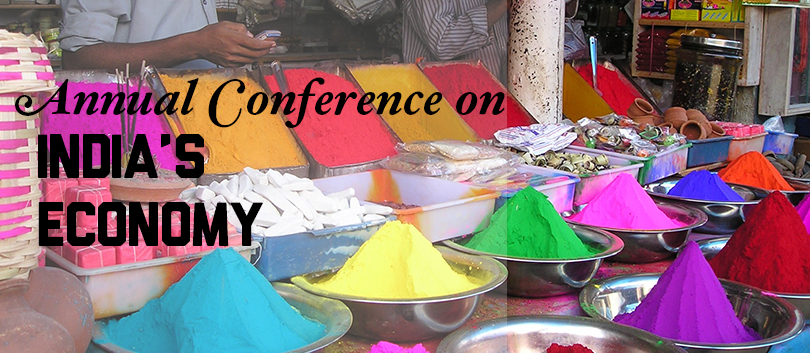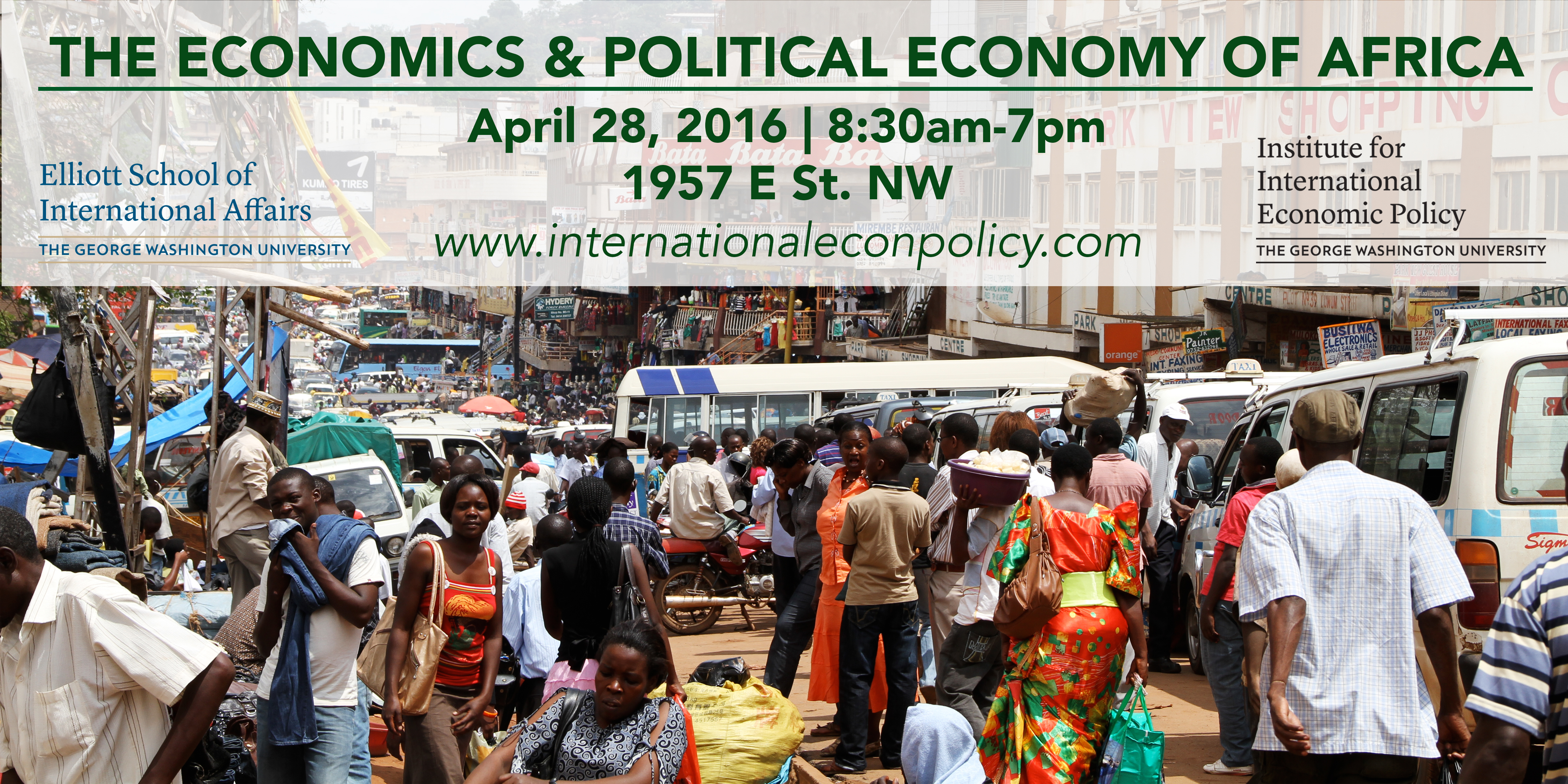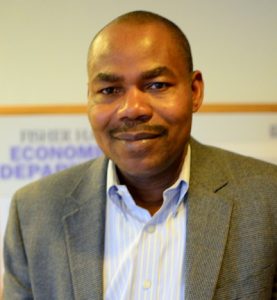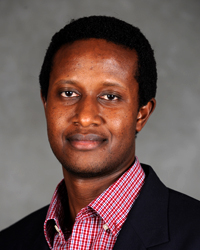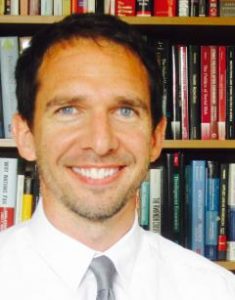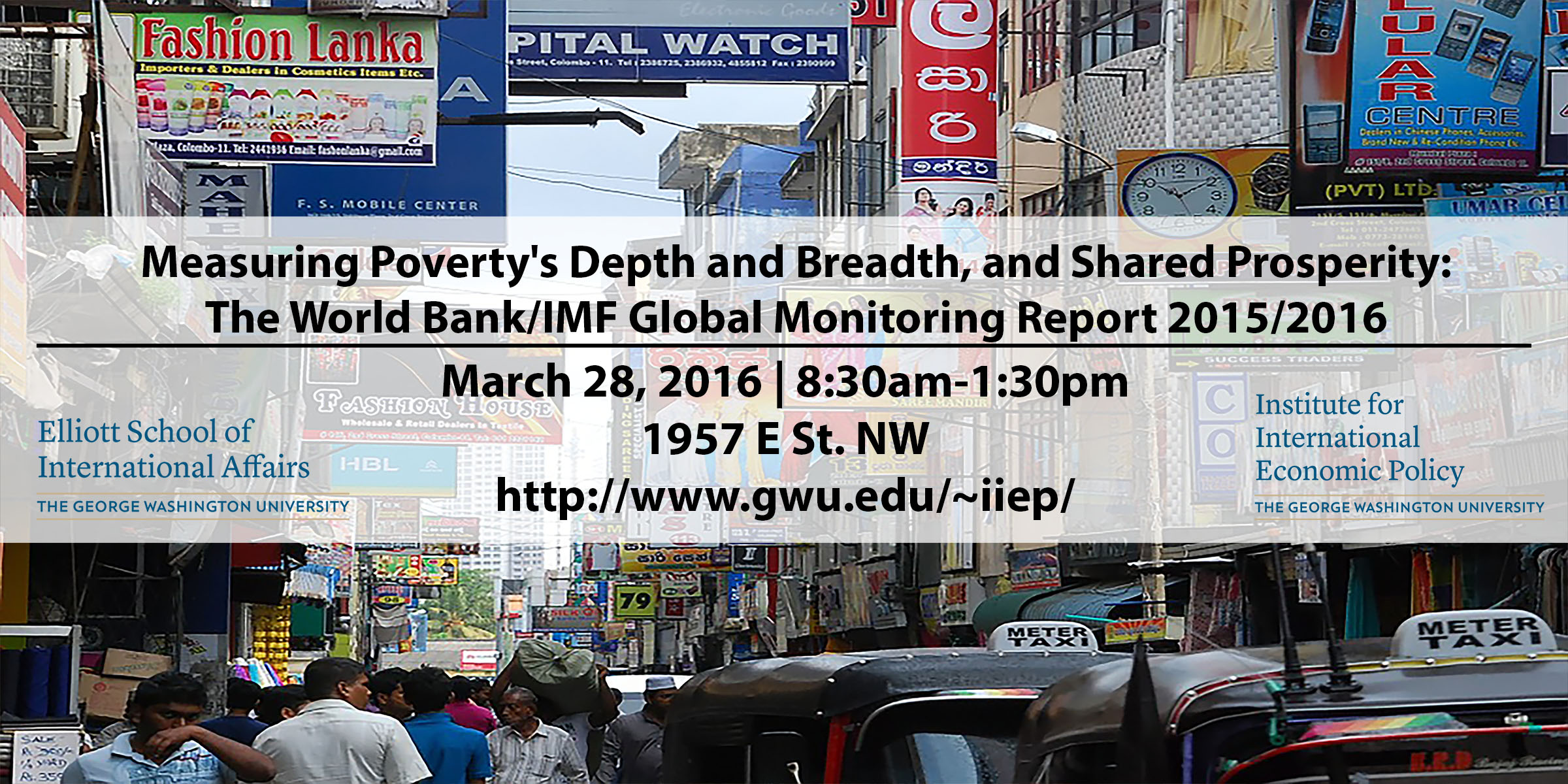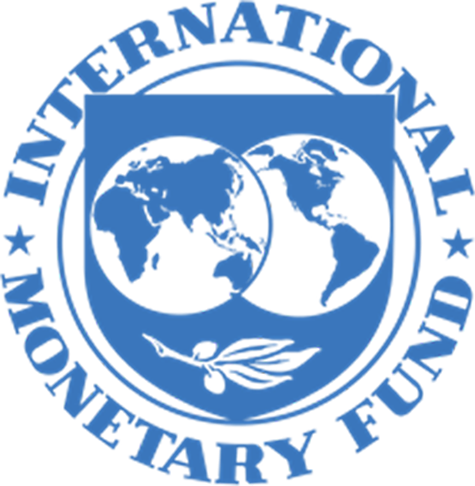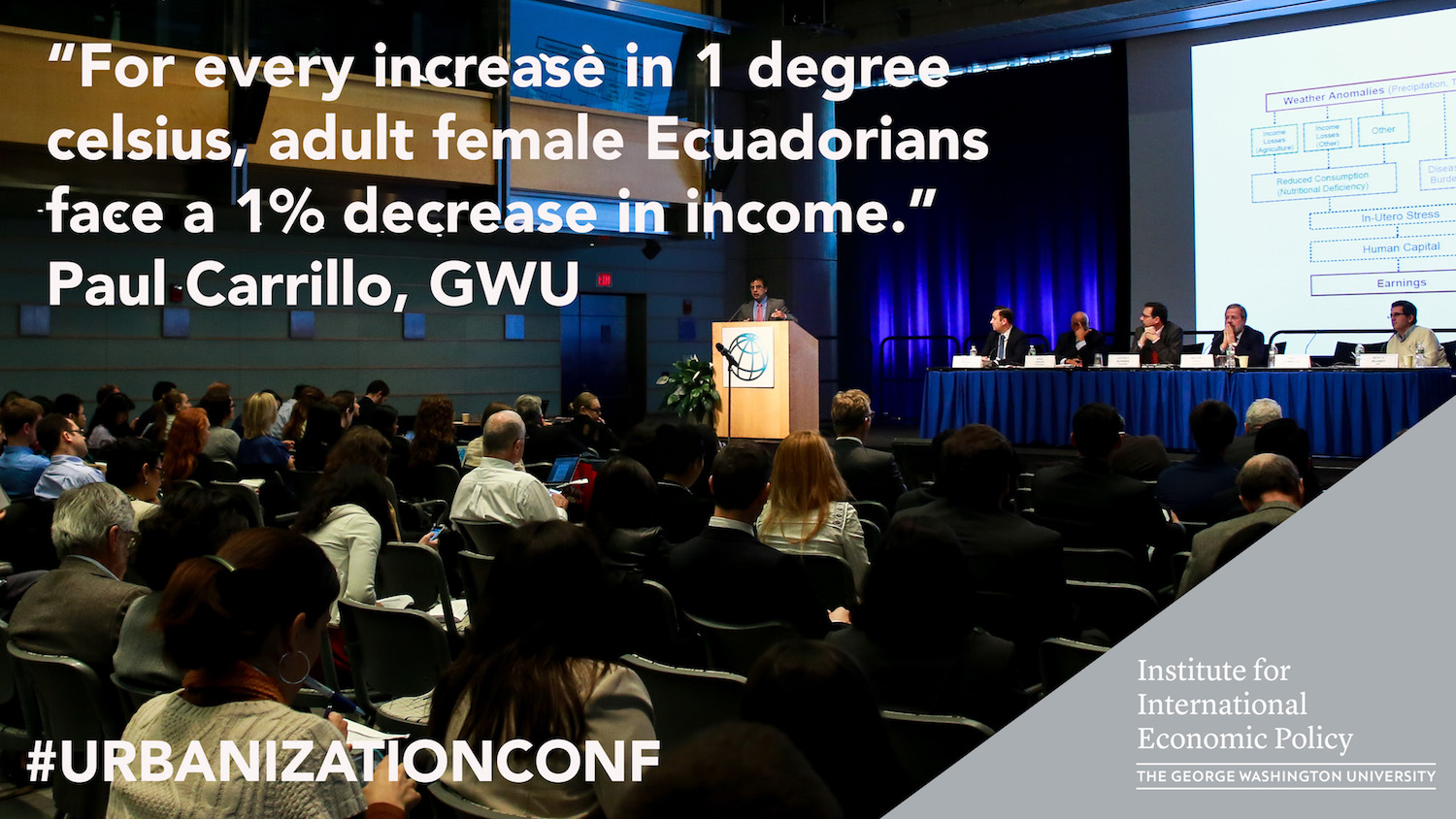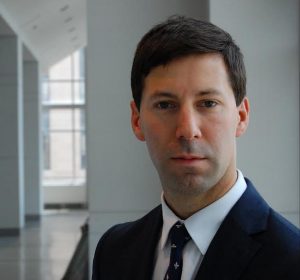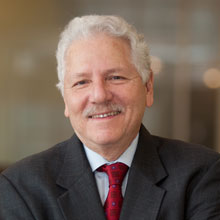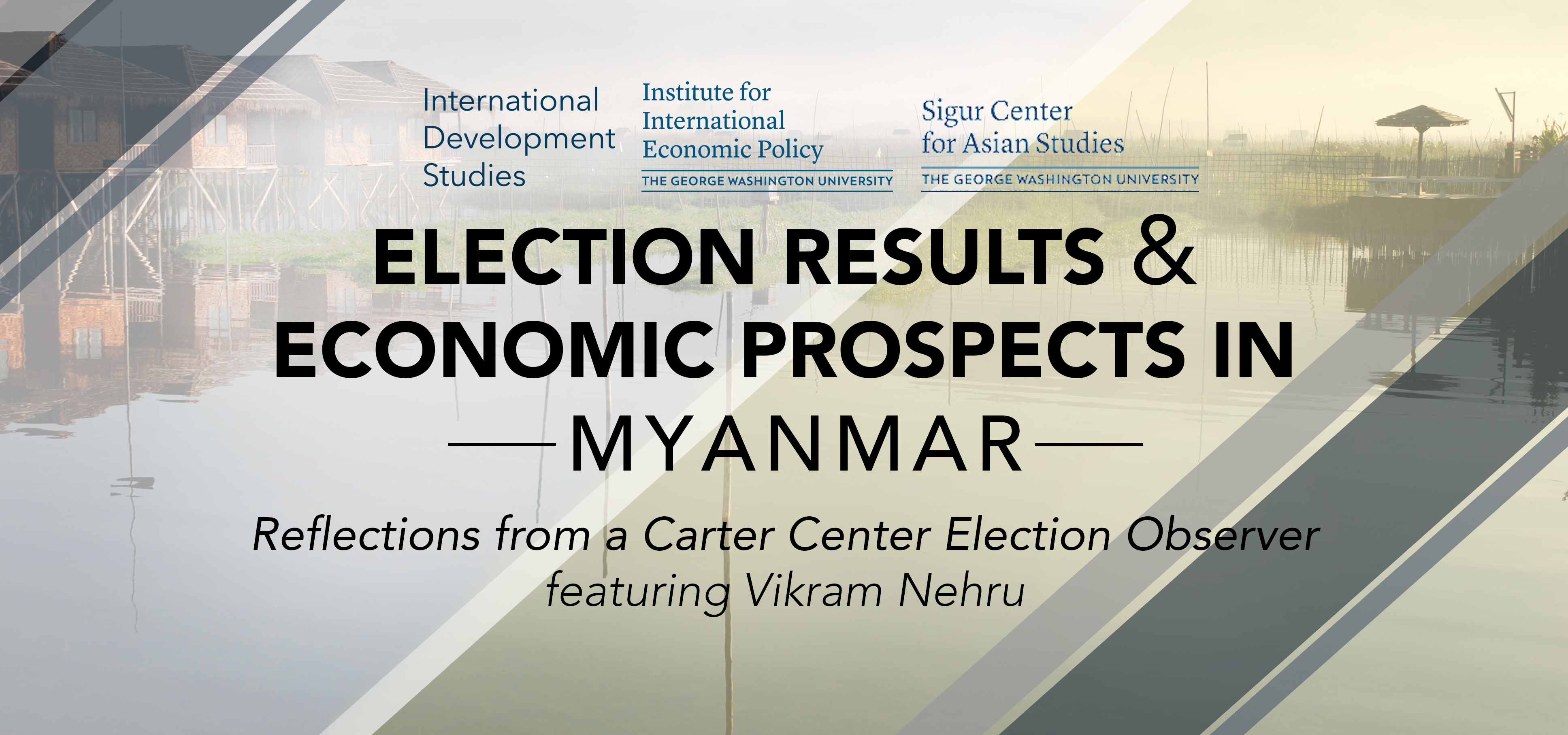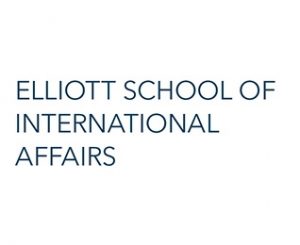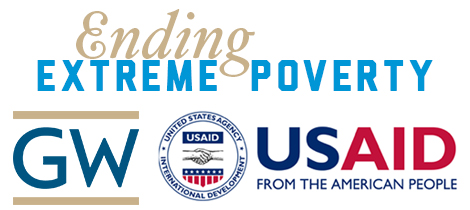Tuesday, April 16th, 2024
Elliott School of International Affairs
City View Room

The Institute for International Economic Policy is pleased to invite you to the annual GW India Conference on India’s Economic Development and U.S.-India Economic Relations. This year’s conference will focus on “Making India an Advanced Economy by 2047: What Will it Take” and will feature numerous esteemed individuals and notable speakers. Breakfast, lunch, and coffee included.
This conference is co-sponsored by the Institute for International Economic Policy, the Institute for International Science and Technology Policy, the GW Center for International Business Education and Research, and the Sigur Center for Asian Studies.
Conference Agenda
8:30-9:00 a.m. – Breakfast and Registration
9:00-9:05 a.m. – Welcome Remarks
James Foster, Carr Professor of International Affairs and Professor of Economics, GWU
9:05-10:15 a.m. – Opening Keynote Session
Chair: Alyssa Ayres, Dean, Elliott School of International Affairs
Thematic Address: Indermit Gill, Chief Economist, The World Bank, “How Can India Avoid the Middle-Income Trap?”
Keynote Address: V. Anantha Nageswaran, Chief Economic Advisor, GOI, “India’s Path to An Advanced Economy: Growth and Structural Transformation”
10:15-11:15 a.m. – Session 1: “India Macroeconomic Imperatives in a Post-Pandemic World”
Chair: Ajay Chhibber, IIEP Distinguished Visiting Scholar, GWU
Speaker: Sajjid Chinoy, J.P.Morgan, and Member, PM’s Economic Advisory Council
Discussant: Prachi Mishra, Chief, Systemic Issues Division, IMF
11:15-11:30 a.m. – Coffee break
11:30 a.m.-12:30 p.m. – Session 2: “India’s Trade Policy and the Global Environment”
Chair: Atman Trivedi, Partner, Albright Stonebridge Group
Speaker: Arun Kumar, former Assistant Secretary of Commerce, USA and former Head, KPMG, India
Discussants: Judith Dean, Professor of International Economics, Brandeis University
12:30-1:30 p.m. – Lunch Keynote Session
Chair: Scott Pace, IISTP and SPI Director, GWU
Lunch Speaker: Dr. Vivek Lall, Chief Executive, General Atomics Global Corporation, on “U.S.-India Technology and Defense Cooperation”
1:30 p.m.-2:30 p.m. – Session 3: “Reducing Inequality and Eliminating Poverty”
Chair: James Foster, GWU
Speaker: Sabina Alkire, Director, Oxford Poverty and Human Development Initiative
Discussants: Nandini Krishnan, Lead Economist, Poverty and Equity, South Asia, The World Bank.
2:30-3:30 p.m. – Session 4: “Social Inclusion and Empowerment”
Chair: Deepa Ollapally, Research Professor of International Affairs, GWU
Speaker: Prerna Singh, Mahatma Gandhi Associate Professor of Political Science and International and Public Affairs, Brown University
Discussant: Irfan Nooruddin, Hamad bin Khalifa Al Thani Professor of Indian Politics, Georgetown University
3:30-3:45 p.m. – Coffee Break
3:45-4:45 p.m. – Session 5: “Climate Change: India’s Pathways and Challenges”
Chair: Maureen Cropper, Distinguished University Professor, University of Maryland
Speaker: Mekala Krishnan, Partner, McKinsey Global Institute
Discussants: Stephane Hallegate, Senior Climate Change Advisor, The World Bank
4:45-5:30 pm – Closing Session: “Pathways to India’s Progress: Breaking the Mould”
Chair: Vivek Arora, Deputy Director, Independent Evaluation Office, IMF
Speaker: Raghuram Rajan, Katherine Dusak Miller Distinguished Service Professor of Finance, Chicago Booth, and 23rd RBI Governor
5:30-6:30 pm – Reception:
Remarks by Junaid Kamal Ahmad, Executive Vice President of MIGA
About the Keynote Speaker
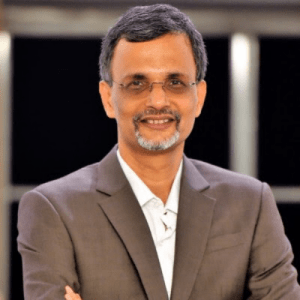 Dr. V. Anantha Nageswaran serves as the Chief Economic Advisor to the Government of India. He wrote a weekly column for Mint for 15 years, as well as co-authored four books. Prior to his current role, Dr. Nageswaran was a part-time member of the Economic Advisory Council to the Prime Minister of India for 2 years and is an honorary senior advisor to the International Financial Services Authority of India. Between 1994 to 2011, he held several positions including Currency Economist at the Union Bank of Switzerland, Head of Research and Investment Consulting in Credit Suisse Private Banking in Asia, and Head of Asia Research and Global Chief Investment Officer at Bank Julius Baer. He graduated from the Indian Institute of Management, Ahmedabad with a Masters in Business Administration and received his PhD in Finance from the University of Massachusetts in Amherst.
Dr. V. Anantha Nageswaran serves as the Chief Economic Advisor to the Government of India. He wrote a weekly column for Mint for 15 years, as well as co-authored four books. Prior to his current role, Dr. Nageswaran was a part-time member of the Economic Advisory Council to the Prime Minister of India for 2 years and is an honorary senior advisor to the International Financial Services Authority of India. Between 1994 to 2011, he held several positions including Currency Economist at the Union Bank of Switzerland, Head of Research and Investment Consulting in Credit Suisse Private Banking in Asia, and Head of Asia Research and Global Chief Investment Officer at Bank Julius Baer. He graduated from the Indian Institute of Management, Ahmedabad with a Masters in Business Administration and received his PhD in Finance from the University of Massachusetts in Amherst.
About the Thematic Address
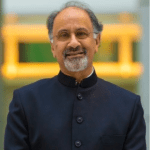
Indermit Gill is Chief Economist of the World Bank Group and Senior Vice President for Development Economics. Before starting this position on September 1, 2022, Gill served as the World Bank’s Vice President for Equitable Growth, Finance, and Institutions, where he helped shape the Bank’s response to the extraordinary series of shocks that have hit developing economies since 2020. Between 2016 and 2021, he was a professor of public policy at Duke University and non-resident senior fellow at the Brookings Institution’s Global Economy and Development program. Gill led the World Bank’s influential 2009 World Development Report on economic geography. His work includes introducing the concept of the “middle-income trap” to describe how countries stagnate after reaching a certain level of income. He has published extensively on key policy issues facing developing countries—among other things, sovereign debt vulnerabilities, green growth and natural-resource wealth, labor markets, and poverty and inequality. Gill has also taught at Georgetown University and the University of Chicago. He holds a Ph.D. in economics from the University of Chicago.
About the Session Speakers
Sajjid Z. Chinoy is J.P. Morgan’s Chief India Economist and also serves on the Advisory Council to the 15th Finance Commission set up by the Government of India. He has previously worked at the International Monetary Fund (IMF) and McKinsey & Company. He has also previously served as a member of the RBI’s “Expert Committee to Revise and Strengthen the Monetary Policy Framework” that proposed inflation targeting in India, was a consultant to the FRBM Review Committee set up by the government to proposed a new fiscal anchor, and a member of the Indian Banks Association (IBA) Monetary Policy Group. Since 2014, he has been ranked as one of the “Best Individuals in Research in India” by Asset Magazine. He has authored several publications on the Indian economy including co-editing a book on Indian economic reform: “Reforming India’s External, Fiscal and Financial Policies” with Dr. Anne O. Krueger. He received his Ph.D. in economics at Stanford University in 2001.
is J.P. Morgan’s Chief India Economist and also serves on the Advisory Council to the 15th Finance Commission set up by the Government of India. He has previously worked at the International Monetary Fund (IMF) and McKinsey & Company. He has also previously served as a member of the RBI’s “Expert Committee to Revise and Strengthen the Monetary Policy Framework” that proposed inflation targeting in India, was a consultant to the FRBM Review Committee set up by the government to proposed a new fiscal anchor, and a member of the Indian Banks Association (IBA) Monetary Policy Group. Since 2014, he has been ranked as one of the “Best Individuals in Research in India” by Asset Magazine. He has authored several publications on the Indian economy including co-editing a book on Indian economic reform: “Reforming India’s External, Fiscal and Financial Policies” with Dr. Anne O. Krueger. He received his Ph.D. in economics at Stanford University in 2001.
Arun Kumar .webp) most recently served as the Chairman and CEO of KPMG in India, an organization consisting of several thousand professionals engaged in providing assurance, tax, and advisory services. He was a member of the global board of directors of KPMG. He previously served in President Obama’s Administration as Assistant Secretary of Commerce for Global Markets and Director General of the U.S. & Foreign Commercial Service (USFCS). As the Administration’s lead official to promote U.S. exports, foreign direct investment, and enhanced market access around the world, he led a team of 1,700 professionals in 78 countries and all 50 United States. Prior to his stint in Washington, DC, Arun was a partner and a member of the board of KPMG LLP in the US. Based in Silicon Valley, he led KPMG’s Management Consulting practice in the West for many years. He has also been a company mentor and entrepreneur in Silicon Valley. Arun is a member of the Council on Foreign Relations. He is the author of The Global Trade Paradigm (HarperCollins, 2023) as well as two books of poetry.
most recently served as the Chairman and CEO of KPMG in India, an organization consisting of several thousand professionals engaged in providing assurance, tax, and advisory services. He was a member of the global board of directors of KPMG. He previously served in President Obama’s Administration as Assistant Secretary of Commerce for Global Markets and Director General of the U.S. & Foreign Commercial Service (USFCS). As the Administration’s lead official to promote U.S. exports, foreign direct investment, and enhanced market access around the world, he led a team of 1,700 professionals in 78 countries and all 50 United States. Prior to his stint in Washington, DC, Arun was a partner and a member of the board of KPMG LLP in the US. Based in Silicon Valley, he led KPMG’s Management Consulting practice in the West for many years. He has also been a company mentor and entrepreneur in Silicon Valley. Arun is a member of the Council on Foreign Relations. He is the author of The Global Trade Paradigm (HarperCollins, 2023) as well as two books of poetry.
 Dr. Vivek Lall is the Chief Executive of General Atomics Global Corporation based in San Diego, California. GA and affiliated companies operate on five continents. The company produces a series of unmanned aircraft (Predator/Reaper/Guardian), produces electro-magnetic aircraft launch and recovery systems, satellite surveillance, electro-magnetic rail gun, high power laser, hypervelocity projectile, and power conversion systems, is the principal private sector participant in thermonuclear fusion research through its internationally recognized DIII-D Facility.
Dr. Vivek Lall is the Chief Executive of General Atomics Global Corporation based in San Diego, California. GA and affiliated companies operate on five continents. The company produces a series of unmanned aircraft (Predator/Reaper/Guardian), produces electro-magnetic aircraft launch and recovery systems, satellite surveillance, electro-magnetic rail gun, high power laser, hypervelocity projectile, and power conversion systems, is the principal private sector participant in thermonuclear fusion research through its internationally recognized DIII-D Facility.
GA is also a leader in development of next-generation nuclear fission and high-temperature materials technologies. Lall has been appointed to the following Boards: Advisory Board of the Quad Investors Network, United States Technical Team member to the NATO STO (Science and Technology Organization),Industry Advisory Board of the American Society of Mechanical Engineers (ASME),International Advisory Group of the US Chamber of Commerce, Board of Directors of US Japan Business Council, Global Board of Directors of the US India Business Council, Senior Advisor to the Center for Commerce and Diplomacy at the University of California San Diego, Board of the Center for Advancing Global Business at San Diego State University and US Cabinet Secretary heading Department of Transportation. Lall served as Vice President of Aeronautics Strategy and Business Development at Lockheed Martin, Chief Executive of U.S. and International Strategic Development at General Atomics Electromagnetic Systems and held leadership roles with The Boeing Company where he was appointed as Vice President and India Country Head, Boeing Defense Space & Security.
In addition, he has worked as an adjunct faculty member at Embry- Riddle, McConnell Air Force Base, served as the founding Co-Chair of the US-India Aviation Cooperation Program and prior to Boeing he worked for Raytheon and conducted research with NASA Ames Research Center in various multidisciplinary engineering fields. Lall was also a special advisor to the United Nations in New York in broadband and associated cyber security issues. He earned a Bachelor of Mechanical Engineering degree from Carleton University in Canada, a Masters of Aeronautical Engineering degree from Embry-Riddle Aeronautical University in Florida, his Ph.D. in Aerospace Engineering from Wichita State University in Kansas, his MBA from City University in Seattle and has completed management and executive courses at the American Management Association in Washington DC.
He was also conferred the President’s Lifetime Achievement Award by the President of the United States of America in September 2022, conferred the “World Leader Award” by the House of Lords in the United Kingdom in 2023 and the Golden Peacock award by the Institute of Directors (IOD) at United Arab Emirates in 2024. He is also an Ambassador of the State of Arkansas and a Kentucky Colonel which is the most well-known US colonelcies conferred to several past US Presidents. He was granted the Grand Cross by His highness Mahmoud Salah Al Din Assaf and Cambridge (UK) has listed him as one of only 2000 Outstanding Scientists of the Twentieth Century as well was President of the Mathematical Association of America. He has authored over hundred articles in various journals. He was also trained as a private pilot at the Phoenix International Flight Training Center in Florida.
Sabina Alkire directs the Oxford Poverty and Human Development Initiative (OPHI) at ODID. Her research interests include multidimensional poverty measurement and analysis, welfare economics, the capability approach, the measurement of freedoms and human development. Together with Professor James Foster, she developed the Alkire-Foster (AF) method for measuring multidimensional poverty, a flexible technique that can incorporate different dimensions, or aspects of poverty, to create measures tailored to each context. With colleagues at OPHI this has been applied and implemented empirically to produce a Multidimensional Poverty Index (MPI). The MPI offers a tool to identify who is poor by considering the range of deprivations they suffer. It is used to report a headline figure of poverty (the MPI), which can be unpacked to provide a detailed information platform for policy design showing how people are poor nationally, and how they are poor by areas, groups, and by each indicator. Previously, she worked at the George Washington University, Harvard University, the Human Security Commission, and the World Bank. She has a DPhil in Economics from the University of Oxford. She holds a DPhil in Economics, an Msc in Economics for Development and an MPhil in Christian Political Ethics from the University of Oxford.
directs the Oxford Poverty and Human Development Initiative (OPHI) at ODID. Her research interests include multidimensional poverty measurement and analysis, welfare economics, the capability approach, the measurement of freedoms and human development. Together with Professor James Foster, she developed the Alkire-Foster (AF) method for measuring multidimensional poverty, a flexible technique that can incorporate different dimensions, or aspects of poverty, to create measures tailored to each context. With colleagues at OPHI this has been applied and implemented empirically to produce a Multidimensional Poverty Index (MPI). The MPI offers a tool to identify who is poor by considering the range of deprivations they suffer. It is used to report a headline figure of poverty (the MPI), which can be unpacked to provide a detailed information platform for policy design showing how people are poor nationally, and how they are poor by areas, groups, and by each indicator. Previously, she worked at the George Washington University, Harvard University, the Human Security Commission, and the World Bank. She has a DPhil in Economics from the University of Oxford. She holds a DPhil in Economics, an Msc in Economics for Development and an MPhil in Christian Political Ethics from the University of Oxford.
Prerna Singh  is Mahatma Gandhi Associate Professor of Political Science and International Studies, with appointments in the School of Public Health and the Department of Sociology at Brown University. She has published numerous award-winning books and articles on human development, public health, ethnicity and nationalism. Her first book, How Solidarity Works for Welfare was awarded best book prizes from both the American Political Science and the American Sociological Associations. Singh has been awarded fellowships by the Center for Advanced Study of Behavioral Sciences at Stanford University, the Social Science Research Council, the Andrew Carnegie foundation, the American Academy of Berlin, the Harvard Academy for International and Area Studies, and the American Institute of Indian Studies. She has shared her research with scholarly, policy and popular audiences in over a hundred lectures, including keynote addresses, delivered across twenty different countries.
is Mahatma Gandhi Associate Professor of Political Science and International Studies, with appointments in the School of Public Health and the Department of Sociology at Brown University. She has published numerous award-winning books and articles on human development, public health, ethnicity and nationalism. Her first book, How Solidarity Works for Welfare was awarded best book prizes from both the American Political Science and the American Sociological Associations. Singh has been awarded fellowships by the Center for Advanced Study of Behavioral Sciences at Stanford University, the Social Science Research Council, the Andrew Carnegie foundation, the American Academy of Berlin, the Harvard Academy for International and Area Studies, and the American Institute of Indian Studies. She has shared her research with scholarly, policy and popular audiences in over a hundred lectures, including keynote addresses, delivered across twenty different countries.
Mekala Krishnan  is a partner at the McKinsey Global Institute (MGI), McKinsey’s business and economics research arm. Her research focuses on topics related to sustainable and inclusive growth, including climate risk and the net-zero transition, globalization, productivity growth, and gender economics. Her most recent research focuses on the net-zero transition, adaptation and physical climate risk across sectors and geographies, including its implications for companies and countries. She is an author of the recent MGI reports, The net-zero transition: What it would cost, what it would bring, From poverty to empowerment: Raising the bar for sustainable and inclusive growth, and Climate risk and response: Physical hazards and socioeconomic impacts. Her past research has focused on the risks facing global value chains and the future of globalization. Mekala is a frequent speaker on these topics at global conferences as well as with executives at Fortune 500 companies. She has authored numerous articles and her work has been cited in leading business publications, including The Financial Times, The Wall Street Journal, The Economist, and Harvard Business Review. Mekala serves on a Bretton Woods Committee working group on climate finance and on advisory boards for the Greater Boston Chamber of Commerce and for the Sibley School of Mechanical Engineering at Cornell University. She is also on the board of the Global Fund for Women, a leading public foundation dedicated to improving global gender equality. She was previously a member of a task force at the Hutchins Center on Fiscal and Monetary Policy at Brookings focused on improving productivity measurement. Mekala received her Ph.D. and M.S. degrees in Mechanical Engineering from Cornell University in 2011. Prior to Cornell, she received a Bachelor of Technology degree in Mechanical Engineering in 2006 from the Indian Institute of Technology Delhi.
is a partner at the McKinsey Global Institute (MGI), McKinsey’s business and economics research arm. Her research focuses on topics related to sustainable and inclusive growth, including climate risk and the net-zero transition, globalization, productivity growth, and gender economics. Her most recent research focuses on the net-zero transition, adaptation and physical climate risk across sectors and geographies, including its implications for companies and countries. She is an author of the recent MGI reports, The net-zero transition: What it would cost, what it would bring, From poverty to empowerment: Raising the bar for sustainable and inclusive growth, and Climate risk and response: Physical hazards and socioeconomic impacts. Her past research has focused on the risks facing global value chains and the future of globalization. Mekala is a frequent speaker on these topics at global conferences as well as with executives at Fortune 500 companies. She has authored numerous articles and her work has been cited in leading business publications, including The Financial Times, The Wall Street Journal, The Economist, and Harvard Business Review. Mekala serves on a Bretton Woods Committee working group on climate finance and on advisory boards for the Greater Boston Chamber of Commerce and for the Sibley School of Mechanical Engineering at Cornell University. She is also on the board of the Global Fund for Women, a leading public foundation dedicated to improving global gender equality. She was previously a member of a task force at the Hutchins Center on Fiscal and Monetary Policy at Brookings focused on improving productivity measurement. Mekala received her Ph.D. and M.S. degrees in Mechanical Engineering from Cornell University in 2011. Prior to Cornell, she received a Bachelor of Technology degree in Mechanical Engineering in 2006 from the Indian Institute of Technology Delhi.
Raghuram Rajan  is the Katherine Dusak Miller Distinguished Service Professor of Finance at the University of Chicago’s Booth School. Prior to that, he was the 23rd Governor of the Reserve Bank of India from 2013 to 2016, as well as the Vice Chairman of the Board of the Bank for International Settlements from 2015 to 2016. Dr. Rajan was the Chief Economist and Director of Research at the International Monetary Fund from 2003 to 2006. Dr. Rajan’s research interests range from banking and monetary policy to corporate finance, political economy, communities, and economic development. He co-authored Saving Capitalism from the Capitalists with Luigi Zingales in 2003. He then wrote Fault Lines: How Hidden Fractures Still Threaten the World Economy, for which he was awarded the Financial Times-Goldman Sachs prize for best business book in 2010. In 2019, his book, The Third Pillar: How Markets and the State Leave the Community Behind was a finalist for the Financial Times/McKinsey Business Book of the Year Award. His most recent book, with Rohit Lamba, is Breaking the Mold on reimagining India’s economic future. Dr. Rajan was awarded the inaugural Fischer Black award for the best financial economist under the age of 40 in 2003, the Deutsche Bank prize for financial economics in 2013, the Euromoney Central Bank Governor of the Year in 2014, and Banker magazine’s Global Central Bank Governor of the Year in 2016.
is the Katherine Dusak Miller Distinguished Service Professor of Finance at the University of Chicago’s Booth School. Prior to that, he was the 23rd Governor of the Reserve Bank of India from 2013 to 2016, as well as the Vice Chairman of the Board of the Bank for International Settlements from 2015 to 2016. Dr. Rajan was the Chief Economist and Director of Research at the International Monetary Fund from 2003 to 2006. Dr. Rajan’s research interests range from banking and monetary policy to corporate finance, political economy, communities, and economic development. He co-authored Saving Capitalism from the Capitalists with Luigi Zingales in 2003. He then wrote Fault Lines: How Hidden Fractures Still Threaten the World Economy, for which he was awarded the Financial Times-Goldman Sachs prize for best business book in 2010. In 2019, his book, The Third Pillar: How Markets and the State Leave the Community Behind was a finalist for the Financial Times/McKinsey Business Book of the Year Award. His most recent book, with Rohit Lamba, is Breaking the Mold on reimagining India’s economic future. Dr. Rajan was awarded the inaugural Fischer Black award for the best financial economist under the age of 40 in 2003, the Deutsche Bank prize for financial economics in 2013, the Euromoney Central Bank Governor of the Year in 2014, and Banker magazine’s Global Central Bank Governor of the Year in 2016.
About the Reception Speaker
 Junaid Kamal Ahmad is Vice President of Operations at the Multilateral Investment Guarantee Agency (MIGA), the Political Risk Insurance and Credit Enhancement arm of the World Bank Group (WBG). He is responsible for advancing and enhancing MIGA’s brand partnering across WBG and with financial institutions, private investors, and development actors to originate and pursue meaningful, impact-driven projects. Mr. Ahmad also leads the Operations team of the Agency to deliver on MIGA’s mandate of mobilizing private finance for development projects in emerging markets and developing economies (EMDEs).
Junaid Kamal Ahmad is Vice President of Operations at the Multilateral Investment Guarantee Agency (MIGA), the Political Risk Insurance and Credit Enhancement arm of the World Bank Group (WBG). He is responsible for advancing and enhancing MIGA’s brand partnering across WBG and with financial institutions, private investors, and development actors to originate and pursue meaningful, impact-driven projects. Mr. Ahmad also leads the Operations team of the Agency to deliver on MIGA’s mandate of mobilizing private finance for development projects in emerging markets and developing economies (EMDEs).
Mr. Ahmad, a Bangladeshi national, was previously the Country Director for the World Bank in India. He joined the Bank in 1991 as a Young Professional and worked on infrastructure development in Africa and Eastern Europe. He has since held several management positions, leading the Bank’s programs in diverse regions including Africa, the Middle East and North Africa, and South Asia. Mr. Ahmad served as the Chief of Staff and earlier as Special Assistant to the President of the World Bank Group. During a part of his time at the Bank, Mr. Ahmad was based in Johannesburg and New Delhi and in 2004, he was a core member of the World Development Report: Making Services Work for Poor People.
Throughout his career, Mr. Ahmad has focused on the role of service delivery in building and leveraging state capability and markets towards the goals of economic development and sustainability. In his work, Mr. Ahmad has focused on public finance and federalism and the management of urban governments across diverse country contexts from fragile and conflict settings, low and middle income, to large federations. In addition, he has worked on public-private partnerships in infrastructure sectors and with municipal governments, focusing on the mobilization of private equity and long-term debt from capital markets. As the first Senior Director of the World Bank’s Water Global Practice and the former Country Director for India, Mr. Ahmad initiated and oversaw multi-billion-dollar sector and country programs covering finance, infrastructure, and human development. He is recognized for his strategic leadership of teams to deliver impact at scale.
Mr. Ahmad holds a PhD in Applied Economics from Stanford University, a 2-year MPA from Harvard University and a BA in Economics from Brown University. Prior to joining the World Bank Group, Mr. Ahmad worked in the Planning Commission, Government of Bangladesh, in the areas of trade and industrial policy. Mr. Ahmad has published on fiscal federalism and decentralization and on various aspects of infrastructure reform and service delivery.



 Associate at OPHI and a Post-Doctoral Fellow of the Consejo Nacional de Investigaciones Cientificas y Tecnicas (CONICET), Argentina. Her research interests include the measurement and analysis of chronic and multidimensional poverty, the quality of education, its determinants, and its role for poverty persistence. She is particularly interested in Latin American countries.
Associate at OPHI and a Post-Doctoral Fellow of the Consejo Nacional de Investigaciones Cientificas y Tecnicas (CONICET), Argentina. Her research interests include the measurement and analysis of chronic and multidimensional poverty, the quality of education, its determinants, and its role for poverty persistence. She is particularly interested in Latin American countries. James Foster is the Oliver T. Carr, Jr., Professor of International Affairs and Professor of Economics at the George Washington University. He is also a Research Associate at the Oxford Poverty and Human Development Initiative at Oxford University. Professor Foster’s research focuses on welfare economics — using economic tools to evaluate and enhance the wellbeing of people. His work underlies many well-known social indices including the FGT poverty measures, the global Multidimensional Poverty Index (MPI), dozens of national MPIs used to guide domestic policy against poverty, the Women’s Empowerment in Agriculture Index (WEAI) at USAID, the Gross National Happiness Index of Bhutan, the Better Jobs Index of the InterAmerican Development Bank, and the Statistical Performance Index of the World Bank. Prof. Foster received his PhD in Economics from Cornell University and has a Doctorate Honoris Causa from Universidad Autónoma del Estado Hidalgo (Mexico).
James Foster is the Oliver T. Carr, Jr., Professor of International Affairs and Professor of Economics at the George Washington University. He is also a Research Associate at the Oxford Poverty and Human Development Initiative at Oxford University. Professor Foster’s research focuses on welfare economics — using economic tools to evaluate and enhance the wellbeing of people. His work underlies many well-known social indices including the FGT poverty measures, the global Multidimensional Poverty Index (MPI), dozens of national MPIs used to guide domestic policy against poverty, the Women’s Empowerment in Agriculture Index (WEAI) at USAID, the Gross National Happiness Index of Bhutan, the Better Jobs Index of the InterAmerican Development Bank, and the Statistical Performance Index of the World Bank. Prof. Foster received his PhD in Economics from Cornell University and has a Doctorate Honoris Causa from Universidad Autónoma del Estado Hidalgo (Mexico). 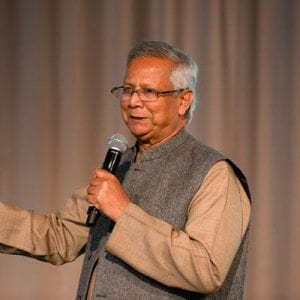 Nobel Laureate Professor Muhammad Yunus is the founder of Grameen Bank, pioneering the concepts of microcredit and social business, founding more than 50 Social Business companies in Bangladesh. For his constant innovation and enterprise, the Fortune Magazine named Professor Yunus in March 2012 as “one of the greatest entrepreneurs of our time.” At the Opening Ceremony of the Olympic Games Tokyo 2020 Professor Yunus was conferred with the Olympic Laurel award for his extensive work in sports for development, bringing the concept of social business to the sports world.
Nobel Laureate Professor Muhammad Yunus is the founder of Grameen Bank, pioneering the concepts of microcredit and social business, founding more than 50 Social Business companies in Bangladesh. For his constant innovation and enterprise, the Fortune Magazine named Professor Yunus in March 2012 as “one of the greatest entrepreneurs of our time.” At the Opening Ceremony of the Olympic Games Tokyo 2020 Professor Yunus was conferred with the Olympic Laurel award for his extensive work in sports for development, bringing the concept of social business to the sports world. Putu Natih supports the OPHI Outreach team and is also a lecturer at the Faculty of Economics and Business, Universitas Indonesia (FEB UI), where she teaches Econometrics for undergraduate and postgraduate students. Putu is also currently supporting Indonesia’s Coordinating Ministry for Human Development and Culture, as a social protection specialist. Before OPHI and FEB UI, Putu was a Statistics Tutor at Keble and St John’s Colleges at the University of Oxford. She also worked as a Research Assistant at the Blavatnik School of Government within a project on digital inequality. Putu completed her undergraduate degree at the Faculty of Economics, Universitas Indonesia and was a Jardine-Oxford Scholar at Trinity College, the University of Oxford, where she studied for her MPhil and DPhil.
Putu Natih supports the OPHI Outreach team and is also a lecturer at the Faculty of Economics and Business, Universitas Indonesia (FEB UI), where she teaches Econometrics for undergraduate and postgraduate students. Putu is also currently supporting Indonesia’s Coordinating Ministry for Human Development and Culture, as a social protection specialist. Before OPHI and FEB UI, Putu was a Statistics Tutor at Keble and St John’s Colleges at the University of Oxford. She also worked as a Research Assistant at the Blavatnik School of Government within a project on digital inequality. Putu completed her undergraduate degree at the Faculty of Economics, Universitas Indonesia and was a Jardine-Oxford Scholar at Trinity College, the University of Oxford, where she studied for her MPhil and DPhil.
 Sola Afolayan works at The Presidency, and is the National Coordinator of the Multidimensional Poverty Index (MPI) project, in Nigeria. The MPI; a poverty measurement and policy tool, is an intervention under the Nigerian Government’s National Poverty Reduction with Growth Strategy (NPRGS), which is used in complement with monetary poverty measurement, to understand the country’s poverty dynamics.In the last 22 years, Sola has led teams and held leadership positions across 23 countries in sub-Saharan Africa and Europe. At these roles, she sought to shape policy discourses in poverty reduction, social protection, budget performance, infrastructure financing, rural electrification, gender related issues, and in deploying public-private partnerships to address conflicts in the Niger Delta region of Nigeria.She describes her career highlight as the recent launch of the Nigeria MPI report by the President of Nigeria, and also in 2015 when she helped set up the framework for a GBP 37 Million programme, where 186kWp solar Photovoltaic (PV) systems each were installed at 11 Clinics and 172 public schools in rural and per-urban areas of Lagos State; resulting in positive health and education outcomes, with over 140,000 homes being solar powered.
Sola Afolayan works at The Presidency, and is the National Coordinator of the Multidimensional Poverty Index (MPI) project, in Nigeria. The MPI; a poverty measurement and policy tool, is an intervention under the Nigerian Government’s National Poverty Reduction with Growth Strategy (NPRGS), which is used in complement with monetary poverty measurement, to understand the country’s poverty dynamics.In the last 22 years, Sola has led teams and held leadership positions across 23 countries in sub-Saharan Africa and Europe. At these roles, she sought to shape policy discourses in poverty reduction, social protection, budget performance, infrastructure financing, rural electrification, gender related issues, and in deploying public-private partnerships to address conflicts in the Niger Delta region of Nigeria.She describes her career highlight as the recent launch of the Nigeria MPI report by the President of Nigeria, and also in 2015 when she helped set up the framework for a GBP 37 Million programme, where 186kWp solar Photovoltaic (PV) systems each were installed at 11 Clinics and 172 public schools in rural and per-urban areas of Lagos State; resulting in positive health and education outcomes, with over 140,000 homes being solar powered. Nicolai Suppa is a Research Associate at OPHI and a Juan de la Cierva Research Fellow at the Centre for Demographic Studies in Barcelona. At OPHI, he works on several research projects. Since 2018, he also co-leads the estimation of the global Multidimensional Poverty Index (global MPI), together with Usha Kanagaratnam and Sabina Alkire.
Nicolai Suppa is a Research Associate at OPHI and a Juan de la Cierva Research Fellow at the Centre for Demographic Studies in Barcelona. At OPHI, he works on several research projects. Since 2018, he also co-leads the estimation of the global Multidimensional Poverty Index (global MPI), together with Usha Kanagaratnam and Sabina Alkire. Kirsten Sehnbruch is a Global Professor of the British Academy and a Distinguished Policy Fellow at the International Inequalities Institute at the London School of Economics and Political Science. Previously, she was a Research Fellow at the Universidad de Chile, and a Senior Lecturer at the University of California, at Berkeley.
Kirsten Sehnbruch is a Global Professor of the British Academy and a Distinguished Policy Fellow at the International Inequalities Institute at the London School of Economics and Political Science. Previously, she was a Research Fellow at the Universidad de Chile, and a Senior Lecturer at the University of California, at Berkeley. Mauricio Apablaza is director of research at the School of Government at the Universidad del Desarrollo, Chile, research associate of the Oxford Poverty and Human Development Initiative (OPHI) at Oxford University and Visiting Fellow at the International Inequalities Institute at London School of Economics and Political Science (LSE). Mauricio is also the director of the programme Conocimiento e Investigación en Personas Mayores (CIPEM) and president of the Chilean Commission for Quality of Employment and former member of the Chilean commission of experts on informal labour. Previously, he worked as Research Officer and Outreach Coordinator at OPHI, at the University of Oxford. Mauricio holds a PhD in Economics from the University of Nottingham and a postdoc at the University of Oxford. His research areas and publications focus on institutions, multidimensionality, and poverty dynamics.
Mauricio Apablaza is director of research at the School of Government at the Universidad del Desarrollo, Chile, research associate of the Oxford Poverty and Human Development Initiative (OPHI) at Oxford University and Visiting Fellow at the International Inequalities Institute at London School of Economics and Political Science (LSE). Mauricio is also the director of the programme Conocimiento e Investigación en Personas Mayores (CIPEM) and president of the Chilean Commission for Quality of Employment and former member of the Chilean commission of experts on informal labour. Previously, he worked as Research Officer and Outreach Coordinator at OPHI, at the University of Oxford. Mauricio holds a PhD in Economics from the University of Nottingham and a postdoc at the University of Oxford. His research areas and publications focus on institutions, multidimensionality, and poverty dynamics.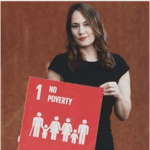 Josefin Pasanen works as a Research & Partnerships Specialist at the UNDP Human Development Report Office (HDRO). Prior to joining HDRO, she was head of Capacity Building at the Latin America & Caribbean Office of Poverty Action Lab (J-PAL LAC), where she led a team that supported government, NGO, and private sector partners across the region to develop capacities for evidence-based policymaking, research, monitoring and evaluation. She is a development economist by training and holds an MSc In Local Economic Development from the London School of Economics and Political Science (LSE) and a BSc in Economics and Political Science from Uppsala University. Josefin’s previous experience also includes research at the Swedish Agency for Public Management and the Institute for Evaluation of Labour Market and Education Policy, and policy advisory for the Mayor ́s office at the City of Stockholm.
Josefin Pasanen works as a Research & Partnerships Specialist at the UNDP Human Development Report Office (HDRO). Prior to joining HDRO, she was head of Capacity Building at the Latin America & Caribbean Office of Poverty Action Lab (J-PAL LAC), where she led a team that supported government, NGO, and private sector partners across the region to develop capacities for evidence-based policymaking, research, monitoring and evaluation. She is a development economist by training and holds an MSc In Local Economic Development from the London School of Economics and Political Science (LSE) and a BSc in Economics and Political Science from Uppsala University. Josefin’s previous experience also includes research at the Swedish Agency for Public Management and the Institute for Evaluation of Labour Market and Education Policy, and policy advisory for the Mayor ́s office at the City of Stockholm. Vladimir Hlasny, economic affairs officer with UN-ESCWA (Beirut), Poverty and inequality research team. Previously an associate professor of Economics at Ewha Womans University (Seoul). His work is on labor market conditions and the distribution of economic outcomes in Asia and the Middle East. His research has been published in general-interest journals including the World Bank Economic Review, Review of Income and Wealth, Journal of Regulatory Economics, Development and Change, and Social Science Quarterly. PhD in Economics from Michigan State University.
Vladimir Hlasny, economic affairs officer with UN-ESCWA (Beirut), Poverty and inequality research team. Previously an associate professor of Economics at Ewha Womans University (Seoul). His work is on labor market conditions and the distribution of economic outcomes in Asia and the Middle East. His research has been published in general-interest journals including the World Bank Economic Review, Review of Income and Wealth, Journal of Regulatory Economics, Development and Change, and Social Science Quarterly. PhD in Economics from Michigan State University. Hassan Hamie, economist with UN-ESCWA (Beirut), Poverty and inequality research team. Previously worked as an engineer for the Lebanese Petroleum Administration. Currently working on the topics of poverty, Inequality and inclusive development. PhD in Energy Economics from Technical University of Vienna.
Hassan Hamie, economist with UN-ESCWA (Beirut), Poverty and inequality research team. Previously worked as an engineer for the Lebanese Petroleum Administration. Currently working on the topics of poverty, Inequality and inclusive development. PhD in Energy Economics from Technical University of Vienna.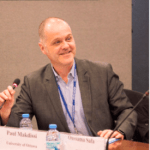 Paul Makdissi is a professor at the Department of Economics of the University of Ottawa. He is currently an Associate Editor of the Journal of Economic Inequality. Previously he has held positions at the Université de Sherbrooke (Canada) and the Vrije Universiteit Amsterdam (The Netherlands). His main areas of research are socioeconomic health inequality measurement, the distributive impact of taxation and public pricing, and income inequality measurement. He was the president of the Société canadienne de science économique (the French Canadian economics association) for the 2021-2022 academic year. From 2017 to 2019, he was the thematic leader for the Equity and Inclusive Growth research theme for the Economic Research Forum for the Arab Countries, Iran and Turkey. He has also been a consultant for many federal and provincial ministries and agencies in Canada, the World Bank, and the United Nations Economic and Social Commission for Western Asia.
Paul Makdissi is a professor at the Department of Economics of the University of Ottawa. He is currently an Associate Editor of the Journal of Economic Inequality. Previously he has held positions at the Université de Sherbrooke (Canada) and the Vrije Universiteit Amsterdam (The Netherlands). His main areas of research are socioeconomic health inequality measurement, the distributive impact of taxation and public pricing, and income inequality measurement. He was the president of the Société canadienne de science économique (the French Canadian economics association) for the 2021-2022 academic year. From 2017 to 2019, he was the thematic leader for the Equity and Inclusive Growth research theme for the Economic Research Forum for the Arab Countries, Iran and Turkey. He has also been a consultant for many federal and provincial ministries and agencies in Canada, the World Bank, and the United Nations Economic and Social Commission for Western Asia. Suman Seth is an Associate Professor of Economics at the Leeds University Business School and an honorary Research Associate at the Oxford Poverty and Human Development Initiative (OPHI). He had previously been a Research Officer and a Senior Research Officer at OPHI between 2010 and 2015. He is primarily interested in Development Economics with a particular emphasis on measurement methodologies and policy-oriented applications. Previously, he has served as consultants to the Regional Bureau of Latin America and the Caribbean, United Nations Development Programme (UNDP), to the Development Research Groups at the World Bank, and to the Asian Development Bank. He has co-authored a book on income poverty measurement with the World Bank and a book on multidimensional poverty with OPHI colleagues.
Suman Seth is an Associate Professor of Economics at the Leeds University Business School and an honorary Research Associate at the Oxford Poverty and Human Development Initiative (OPHI). He had previously been a Research Officer and a Senior Research Officer at OPHI between 2010 and 2015. He is primarily interested in Development Economics with a particular emphasis on measurement methodologies and policy-oriented applications. Previously, he has served as consultants to the Regional Bureau of Latin America and the Caribbean, United Nations Development Programme (UNDP), to the Development Research Groups at the World Bank, and to the Asian Development Bank. He has co-authored a book on income poverty measurement with the World Bank and a book on multidimensional poverty with OPHI colleagues. Fanni Kovesdi (Oxford Poverty and Human Development Initiative, Department of International Development, University of Oxford)
Fanni Kovesdi (Oxford Poverty and Human Development Initiative, Department of International Development, University of Oxford)
 Scott M. Moore is a political scientist, university administrator, and former policymaker whose career focuses on China, sustainability, and emerging technology. As Director of China Programs and Strategic Initiatives at the University of Pennsylvania, Scott Moore works with faculty members from across the University to design, implement, and highlight innovative, high-impact global research initiatives in areas including sustainability and emerging technology. Dr. Moore directs Penn Global’s four research and engagement fund programs, including those designed to support faculty-led projects in China, India, and Africa as well as its At-Risk Scholars Program. In addition, Dr. Moore conducts research as an affiliate of the Center for the Study of Contemporary China and The Water Center at Penn, and teaches in the Department of Political Science.
Scott M. Moore is a political scientist, university administrator, and former policymaker whose career focuses on China, sustainability, and emerging technology. As Director of China Programs and Strategic Initiatives at the University of Pennsylvania, Scott Moore works with faculty members from across the University to design, implement, and highlight innovative, high-impact global research initiatives in areas including sustainability and emerging technology. Dr. Moore directs Penn Global’s four research and engagement fund programs, including those designed to support faculty-led projects in China, India, and Africa as well as its At-Risk Scholars Program. In addition, Dr. Moore conducts research as an affiliate of the Center for the Study of Contemporary China and The Water Center at Penn, and teaches in the Department of Political Science. interested in understanding the factors that shape technological change, with a particular focus on transitioning to more sustainable and energy-saving technologies. Within this broader category, he studies consumer preferences and market demand for new technologies as well as relationships between innovation, industry structure, and technology policy. He has explored these themes in the context of China’s rapidly developing electric vehicle industry. He applies an interdisciplinary approach to research, with expertise in discrete choice modeling and conjoint analysis as well as interview-based case studies.
interested in understanding the factors that shape technological change, with a particular focus on transitioning to more sustainable and energy-saving technologies. Within this broader category, he studies consumer preferences and market demand for new technologies as well as relationships between innovation, industry structure, and technology policy. He has explored these themes in the context of China’s rapidly developing electric vehicle industry. He applies an interdisciplinary approach to research, with expertise in discrete choice modeling and conjoint analysis as well as interview-based case studies. Barbara Stallings is a William R. Rhodes Research Professor at the Watson Institute for International Studies at Brown University and editor of Studies in Comparative International Development. She is also a Distinguished Visiting Scholar at the Institute for International Economic Policy at George Washington University. Before arriving at Brown in 2002, she was director of the Economic Development Division of the UN Economic Commission for Latin America and the Caribbean in Santiago, Chile (1993–2002), and professor of political economy at the University of Wisconsin–Madison (1977–1993). She has doctorates in economics (University of Cambridge) and in political science (Stanford University) and is a specialist in development economics, with an emphasis on development strategies and international finance. In addition, she works on issues of economic relations between Asia and Latin America and comparisons between the two regions. Her recent books are Innovation and Inclusion in Latin America: Strategies to Avoid the Middle Income Trap (2016) and Promoting Development: The Political Economy of East Asian Foreign Aid (2017). Her most recent book,
Barbara Stallings is a William R. Rhodes Research Professor at the Watson Institute for International Studies at Brown University and editor of Studies in Comparative International Development. She is also a Distinguished Visiting Scholar at the Institute for International Economic Policy at George Washington University. Before arriving at Brown in 2002, she was director of the Economic Development Division of the UN Economic Commission for Latin America and the Caribbean in Santiago, Chile (1993–2002), and professor of political economy at the University of Wisconsin–Madison (1977–1993). She has doctorates in economics (University of Cambridge) and in political science (Stanford University) and is a specialist in development economics, with an emphasis on development strategies and international finance. In addition, she works on issues of economic relations between Asia and Latin America and comparisons between the two regions. Her recent books are Innovation and Inclusion in Latin America: Strategies to Avoid the Middle Income Trap (2016) and Promoting Development: The Political Economy of East Asian Foreign Aid (2017). Her most recent book, 
 James Foster is the Oliver T. Carr, Jr., Professor of International Affairs and Professor of Economics at the George Washington University. He is also a Research Associate at the Oxford Poverty and Human Development Initiative at Oxford University. Professor Foster’s research focuses on welfare economics — using economic tools to evaluate and enhance the wellbeing of people. His work underlies many well-known social indices including the FGT poverty measures, the global Multidimensional Poverty Index (MPI), dozens of national MPIs used to guide domestic policy against poverty, the Women’s Empowerment in Agriculture Index (WEAI) at USAID, the Gross National Happiness Index of Bhutan, the Better Jobs Index of the InterAmerican Development Bank, and the Statistical Performance Index of the World Bank. Prof. Foster received his PhD in Economics from Cornell University and has a Doctorate Honoris Causa from Universidad Autónoma del Estado Hidalgo (Mexico).
James Foster is the Oliver T. Carr, Jr., Professor of International Affairs and Professor of Economics at the George Washington University. He is also a Research Associate at the Oxford Poverty and Human Development Initiative at Oxford University. Professor Foster’s research focuses on welfare economics — using economic tools to evaluate and enhance the wellbeing of people. His work underlies many well-known social indices including the FGT poverty measures, the global Multidimensional Poverty Index (MPI), dozens of national MPIs used to guide domestic policy against poverty, the Women’s Empowerment in Agriculture Index (WEAI) at USAID, the Gross National Happiness Index of Bhutan, the Better Jobs Index of the InterAmerican Development Bank, and the Statistical Performance Index of the World Bank. Prof. Foster received his PhD in Economics from Cornell University and has a Doctorate Honoris Causa from Universidad Autónoma del Estado Hidalgo (Mexico). Ricardo Nogales (Universidad Privada de Bolivia and Oxford Poverty and Human Development Initiative, University of Oxford)
Ricardo Nogales (Universidad Privada de Bolivia and Oxford Poverty and Human Development Initiative, University of Oxford)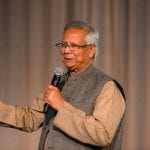

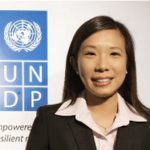 Yu-Chieh Hsu (Human Development Report Office)
Yu-Chieh Hsu (Human Development Report Office) Tasneem Mirza (United Nations Development Programme)
Tasneem Mirza (United Nations Development Programme) Catherina Pattillo is a Deputy Director in the IMF’s African Department where she oversees work on several countries, as well as on climate change, capacity development, gender and research. Since joining the Fund from a position at Oxford University, she has worked in the Fiscal Affairs Department where she was chief of the division responsible for the IMF’s Fiscal Monitor, the Research Department, and on countries in Africa and the Caribbean, and the Strategy, Policy and Review Department where she worked on low-income country issues, and emerging issues such as gender, inequality, and climate change. She has published in these areas, as well as on Sustainable Development Goals, firm dynamics in sub-Saharan Africa, growth, investment, debt, monetary and exchange rate policies, aid, and currency crises. She received her Ph.D in Economics from Yale University.
Catherina Pattillo is a Deputy Director in the IMF’s African Department where she oversees work on several countries, as well as on climate change, capacity development, gender and research. Since joining the Fund from a position at Oxford University, she has worked in the Fiscal Affairs Department where she was chief of the division responsible for the IMF’s Fiscal Monitor, the Research Department, and on countries in Africa and the Caribbean, and the Strategy, Policy and Review Department where she worked on low-income country issues, and emerging issues such as gender, inequality, and climate change. She has published in these areas, as well as on Sustainable Development Goals, firm dynamics in sub-Saharan Africa, growth, investment, debt, monetary and exchange rate policies, aid, and currency crises. She received her Ph.D in Economics from Yale University. Steve Suranovic
Steve Suranovic  Ivanova Reyes is an economist working in the Regional Studies Division of the International Monetary Fund’s African Department. Prior to joining the IMF, she worked at Gettysburg College, the World Bank, Inter-American Development Bank, Ministry of Economy of the Dominican Republic (DR), Superintendency of Pensions of the DR and Pontificia Universidad Catolica (PUCMM) of DR. She holds a PhD in Economics from American University, a masters in economics from Georgetown University and a masters in applied macroeconomics from the Pontificia Universidad Catolica (PUC) of Chile. Her research is focused on analyzing the impact of China’s economy on Latin America and the Caribbean.
Ivanova Reyes is an economist working in the Regional Studies Division of the International Monetary Fund’s African Department. Prior to joining the IMF, she worked at Gettysburg College, the World Bank, Inter-American Development Bank, Ministry of Economy of the Dominican Republic (DR), Superintendency of Pensions of the DR and Pontificia Universidad Catolica (PUCMM) of DR. She holds a PhD in Economics from American University, a masters in economics from Georgetown University and a masters in applied macroeconomics from the Pontificia Universidad Catolica (PUC) of Chile. Her research is focused on analyzing the impact of China’s economy on Latin America and the Caribbean.
 Qianqian Zhang is an economist in the African Department at the IMF. Her research interests include fiscal policy, fiscal decentralization, gender, and development issues. She previously worked in the Fiscal Affairs Department and as a country economist for Afghanistan. She received her PhD from George Washington University and her master’s degree from Cornell University.
Qianqian Zhang is an economist in the African Department at the IMF. Her research interests include fiscal policy, fiscal decentralization, gender, and development issues. She previously worked in the Fiscal Affairs Department and as a country economist for Afghanistan. She received her PhD from George Washington University and her master’s degree from Cornell University. Moses Kansanga is an Assistant Professor of Geography and International Affairs at The George Washington University. He is a critical geographer whose research explores questions at the intersection of sustainable food systems and natural resource management from a political ecology perspective. For the past decade, Moses has worked with smallholder farming communities in the Global South with concentration on sustainable agriculture and natural resource politics. He received his PHD at University of Western Ontario.
Moses Kansanga is an Assistant Professor of Geography and International Affairs at The George Washington University. He is a critical geographer whose research explores questions at the intersection of sustainable food systems and natural resource management from a political ecology perspective. For the past decade, Moses has worked with smallholder farming communities in the Global South with concentration on sustainable agriculture and natural resource politics. He received his PHD at University of Western Ontario. Robert Weiner is the director of the Master of Science in International Business program and a professor of international business, public policy & public administration, and international affairs at the George Washington University School of Business, Washington D.C. He serves concurrently as deputy director of the Master of Science in Government Contracts, a joint program of the GW Schools of Business and Law. He is a faculty director of the Business School’s Center for International Business Education and Research, and an affiliate of the Elliott School of International Affairs’ Institute for International Economic Policy, Institute for Middle East Studies, Institute for Security and Conflict Studies, and Sigur Center for Asian Studies. He is also senior advisor to the Brattle Group. He received his PhD from Harvard University.
Robert Weiner is the director of the Master of Science in International Business program and a professor of international business, public policy & public administration, and international affairs at the George Washington University School of Business, Washington D.C. He serves concurrently as deputy director of the Master of Science in Government Contracts, a joint program of the GW Schools of Business and Law. He is a faculty director of the Business School’s Center for International Business Education and Research, and an affiliate of the Elliott School of International Affairs’ Institute for International Economic Policy, Institute for Middle East Studies, Institute for Security and Conflict Studies, and Sigur Center for Asian Studies. He is also senior advisor to the Brattle Group. He received his PhD from Harvard University.

 Nick Tsivanidis is an Assistant Professor in the Haas School of Business and the Department of Economics at the University of California at Berkeley. I am also Co-Director of the Cities Research Programme at the International Growth Centre (IGC). His interests lie across urban and spatial economics, development and applied macroeconomics. My research centers on connecting theory with empirics that combine new sources of granular data with natural experiments to learn about the process of urbanization in developing countries.
Nick Tsivanidis is an Assistant Professor in the Haas School of Business and the Department of Economics at the University of California at Berkeley. I am also Co-Director of the Cities Research Programme at the International Growth Centre (IGC). His interests lie across urban and spatial economics, development and applied macroeconomics. My research centers on connecting theory with empirics that combine new sources of granular data with natural experiments to learn about the process of urbanization in developing countries.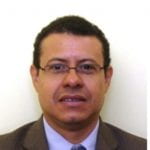 Mauricio Gallardo is Associate Professor at Universidad Católica del Norte in Chile where he teaches Econometrics and Statistical Methods. He holds a master’s degree in Philosophy from Saint Petersburg State University in Russia, a master’s degree in Economics from Pontificia Universidad Católica in Chile, and a Ph.D. in Economics from Universidad Nacional de La Plata in Argentina. Before entering the academy, he worked for the Statistical Division at the Central Bank of Chile. He has also worked providing technical assistance to international organizations on statistical issues. His research interests are related to poverty, vulnerability, and inequality of opportunities.
Mauricio Gallardo is Associate Professor at Universidad Católica del Norte in Chile where he teaches Econometrics and Statistical Methods. He holds a master’s degree in Philosophy from Saint Petersburg State University in Russia, a master’s degree in Economics from Pontificia Universidad Católica in Chile, and a Ph.D. in Economics from Universidad Nacional de La Plata in Argentina. Before entering the academy, he worked for the Statistical Division at the Central Bank of Chile. He has also worked providing technical assistance to international organizations on statistical issues. His research interests are related to poverty, vulnerability, and inequality of opportunities.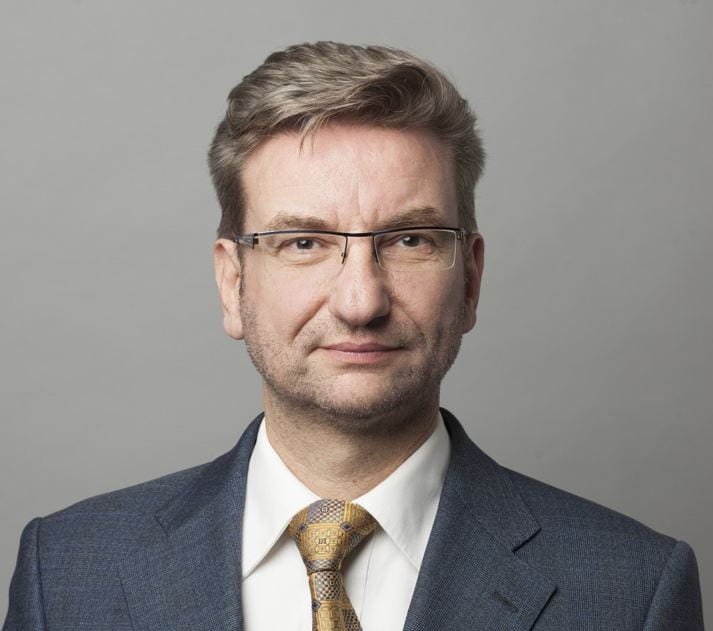 Stefan Sperlich made his diploma in mathematics at the University of Göttingen and holds a PhD in economics from the Humboldt University of Berlin. From 1998 to 2006 he was Professor for statistics at the University Carlos III de Madrid, from 2006 to 2010 chair of econometrics at the University of Göttingen, and is since 2010 professor for statistics and econometrics at the University of Geneva. His research interests are ranging from nonparametric statistics over small area statistics to empirical economics, in particular impact evaluation methods. He has been working since about 15 years as consultant for regional, national and international institutions, participated in development programs like EUROSOCIAL, is cofounder of the research center ‘Poverty, Equity and Growth in Developing Countries’ at the University of Göttingen, and is research fellow at the Center for Evaluation and Development (Mannheim, Germany). He published in various top ranked scientific journals of different fields and was awarded with the Koopmans econometric theory prize (among others).
Stefan Sperlich made his diploma in mathematics at the University of Göttingen and holds a PhD in economics from the Humboldt University of Berlin. From 1998 to 2006 he was Professor for statistics at the University Carlos III de Madrid, from 2006 to 2010 chair of econometrics at the University of Göttingen, and is since 2010 professor for statistics and econometrics at the University of Geneva. His research interests are ranging from nonparametric statistics over small area statistics to empirical economics, in particular impact evaluation methods. He has been working since about 15 years as consultant for regional, national and international institutions, participated in development programs like EUROSOCIAL, is cofounder of the research center ‘Poverty, Equity and Growth in Developing Countries’ at the University of Göttingen, and is research fellow at the Center for Evaluation and Development (Mannheim, Germany). He published in various top ranked scientific journals of different fields and was awarded with the Koopmans econometric theory prize (among others). Adriana Stankiewicz Serra is a Research Associate at the Institute of Economics of the University of Campinas (UNICAMP), Brazil.
Adriana Stankiewicz Serra is a Research Associate at the Institute of Economics of the University of Campinas (UNICAMP), Brazil. Iñaki Permanyer, an ICREA Research Professor working at the Center for Demographic Studies (CED) at the Autonomous University of Barcelona.
Iñaki Permanyer, an ICREA Research Professor working at the Center for Demographic Studies (CED) at the Autonomous University of Barcelona. Kehinde O. Omotoso holds a PhD in Economics from the University of Pretoria, South Africa. Her research covers a wide range of development issues relating to multidimensional poverty, health, gender, climate change and food security. Her research and policy experience spans over a decade during which she has gained a deep understanding of the microeconomic factors that determine poverty and health inequality in sub-Saharan Africa and beyond. She contributes regularly to the policy discourse on multidimensional poverty in the context of sustainable development goals (SDGs). She has presented several research papers in both national and international conferences, seminars and workshops. She has a number of research articles published in reputable journals. She is currently on a post-doctoral research fellowship
Kehinde O. Omotoso holds a PhD in Economics from the University of Pretoria, South Africa. Her research covers a wide range of development issues relating to multidimensional poverty, health, gender, climate change and food security. Her research and policy experience spans over a decade during which she has gained a deep understanding of the microeconomic factors that determine poverty and health inequality in sub-Saharan Africa and beyond. She contributes regularly to the policy discourse on multidimensional poverty in the context of sustainable development goals (SDGs). She has presented several research papers in both national and international conferences, seminars and workshops. She has a number of research articles published in reputable journals. She is currently on a post-doctoral research fellowship


 Trevor Jackson is an assistant professor of economic history at George Washington University, where he teaches the history of inequality and economic crisis. He works on early modern European economic history, with an emphasis on inequality and financial crisis. His book manuscript, Impunity and Capitalism: Afterlives of European Financial Crisis, 1680-1830, is under contract with Cambridge University Press. It examines how changes in the scope for prosecutorial discretion, technical complexity, and the international mobility of capital diffused the capacity to act with impunity in the economy across the very long eighteenth century. The project argues that impunity has shifted from the sole possession of a legally-immune sovereign to a functional characteristic of technically-skilled professional managers of capital, to an imagined quality of markets themselves, such that a constituent element of the modern economic sphere is that within it, great harm can and will happen to great many people, and nobody will be at fault. Dr. Jackson has taught courses on international economic history ranging from the early modern period to the twentieth century, as well as courses on capitalism and inequality, the history of economic crisis, and the history of human rights. Prior to joining the faculty at the George Washington University, he lectured at the University of California, Berkeley.
Trevor Jackson is an assistant professor of economic history at George Washington University, where he teaches the history of inequality and economic crisis. He works on early modern European economic history, with an emphasis on inequality and financial crisis. His book manuscript, Impunity and Capitalism: Afterlives of European Financial Crisis, 1680-1830, is under contract with Cambridge University Press. It examines how changes in the scope for prosecutorial discretion, technical complexity, and the international mobility of capital diffused the capacity to act with impunity in the economy across the very long eighteenth century. The project argues that impunity has shifted from the sole possession of a legally-immune sovereign to a functional characteristic of technically-skilled professional managers of capital, to an imagined quality of markets themselves, such that a constituent element of the modern economic sphere is that within it, great harm can and will happen to great many people, and nobody will be at fault. Dr. Jackson has taught courses on international economic history ranging from the early modern period to the twentieth century, as well as courses on capitalism and inequality, the history of economic crisis, and the history of human rights. Prior to joining the faculty at the George Washington University, he lectured at the University of California, Berkeley.

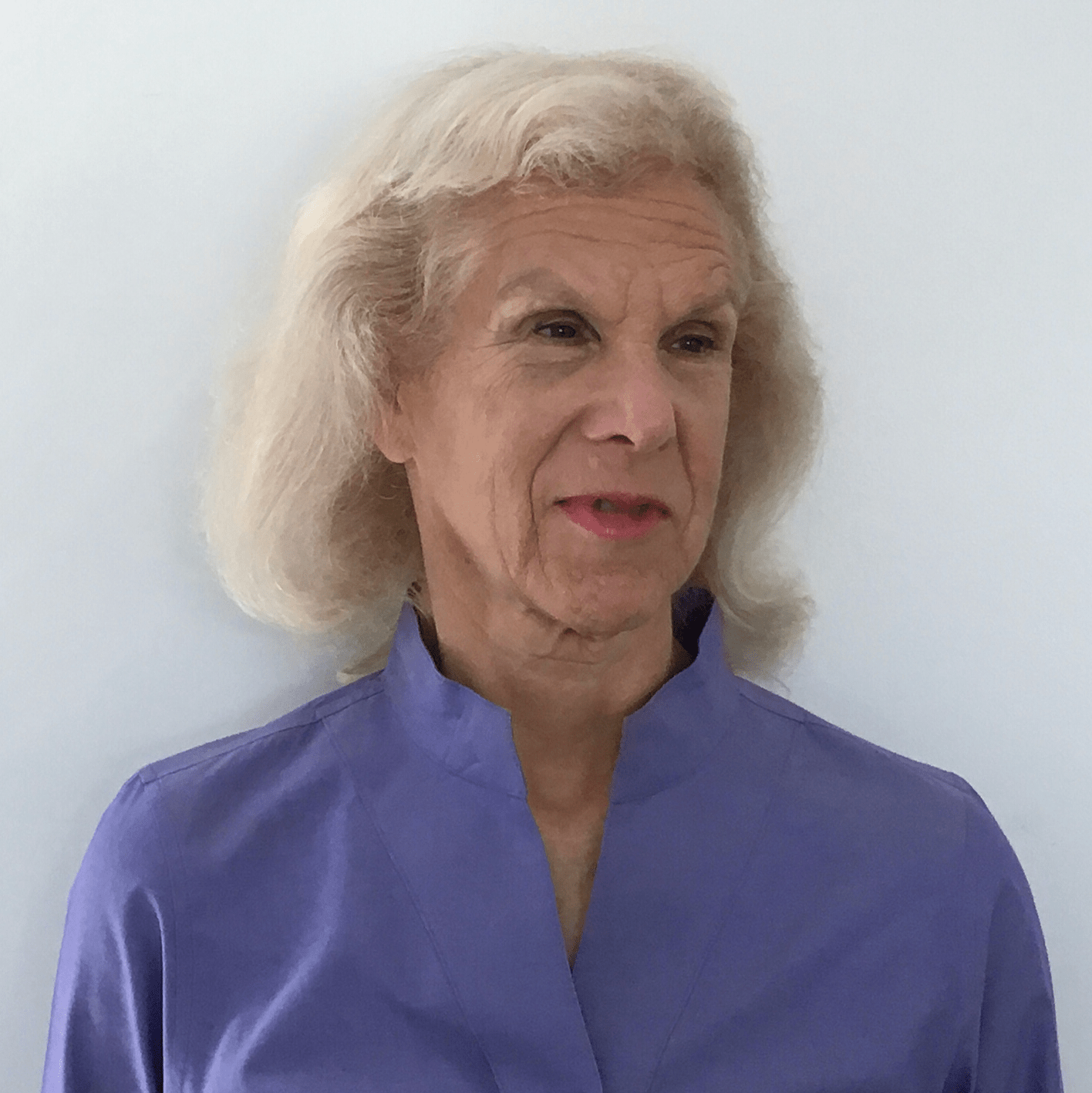












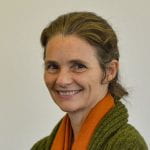



 Peter Dietsch is a professor in the Department of Philosophy at the University of Victoria, British Columbia. His research focuses on issues of economic ethics, notably on tax justice, normative dimensions of monetary policy, and on income inequalities. Dietsch is the author of Catching Capital – The Ethics of Tax Competition (Oxford University Press, 2015), co-author of Do Central Banks Serve the People? (Polity Press, 2018), and co-editor of Global Tax Governance – What is Wrong with It and How to Fix It (ECPR Press, 2016). He has published numerous articles and book chapters, and is a regular contributor in the media on debates in his field. Dietsch received the Friedrich Wilhelm Bessel Research Award from the Humboldt Foundation in 2021 and was nominated to the College of New Scholars, Artists and Scientists of the Royal Society of Canada in 2017. Prior to the University of Victoria, Dietsch taught at the Université de Montréal for 16 years. He has been a visiting fellow at the Wissenschaftszentrum Berlin, at the European University Institute in Florence, and at the University of Victoria.
Peter Dietsch is a professor in the Department of Philosophy at the University of Victoria, British Columbia. His research focuses on issues of economic ethics, notably on tax justice, normative dimensions of monetary policy, and on income inequalities. Dietsch is the author of Catching Capital – The Ethics of Tax Competition (Oxford University Press, 2015), co-author of Do Central Banks Serve the People? (Polity Press, 2018), and co-editor of Global Tax Governance – What is Wrong with It and How to Fix It (ECPR Press, 2016). He has published numerous articles and book chapters, and is a regular contributor in the media on debates in his field. Dietsch received the Friedrich Wilhelm Bessel Research Award from the Humboldt Foundation in 2021 and was nominated to the College of New Scholars, Artists and Scientists of the Royal Society of Canada in 2017. Prior to the University of Victoria, Dietsch taught at the Université de Montréal for 16 years. He has been a visiting fellow at the Wissenschaftszentrum Berlin, at the European University Institute in Florence, and at the University of Victoria.








 Nathan Nunn is Frederic E. Abbe Professor of Economics at Harvard University. Professor Nunn’s primary research interests are in political economy, economic history, economic development, cultural economics, and international trade. He is an NBER Faculty Research Fellow, a Research Fellow at BREAD, a Faculty Associate at Harvard’s Weatherhead Center for International Affairs (WCFIA), and a Fellow of the Canadian Institute for Advanced Research (CIFAR) in the Boundaries, Membership & Belonging program. One stream of Professor Nunn’s research focuses on the historical and dynamic process of economic development. In particular, he has studied the factors that shape differences in the evolution of institutions and cultures across societies. He has published research that studies the historical process of a wide range of factors that are crucial for economic development, including distrust, gender norms, religiosity, norms of rule-following, conflict, immigration, state formation, and support for democracy. His current research interests lie in better understanding the importance of local culture and context for economic policies, particularly in developing countries.
Nathan Nunn is Frederic E. Abbe Professor of Economics at Harvard University. Professor Nunn’s primary research interests are in political economy, economic history, economic development, cultural economics, and international trade. He is an NBER Faculty Research Fellow, a Research Fellow at BREAD, a Faculty Associate at Harvard’s Weatherhead Center for International Affairs (WCFIA), and a Fellow of the Canadian Institute for Advanced Research (CIFAR) in the Boundaries, Membership & Belonging program. One stream of Professor Nunn’s research focuses on the historical and dynamic process of economic development. In particular, he has studied the factors that shape differences in the evolution of institutions and cultures across societies. He has published research that studies the historical process of a wide range of factors that are crucial for economic development, including distrust, gender norms, religiosity, norms of rule-following, conflict, immigration, state formation, and support for democracy. His current research interests lie in better understanding the importance of local culture and context for economic policies, particularly in developing countries. Rémi Jedwab is an associate professor of Economics and International Affairs at the Elliott School and the Department of Economics of George Washington University and an Affiliated Scholar of the Marron Institute of Urban Management at New York University. Professor Jedwab’s main fields of research are development and growth, urban economics, labor economics and political economy. Some of the issues he has studied include urbanization and structural transformation, the relationship between population growth and economic growth, the economic effects of transportation infrastructure, and the roles of institutions, human capital and technology in development. He is the co-founder and co-organizer of the World Bank-GWU Urbanization and Poverty Reduction Conference and the Washington Area Development Economics Symposium. His research has been published in the American Economic Review, the Review of Economics and Statistics, the Economic Journal, and the Journal of Urban Economics. Finally, he is an Associate Editor at the Journal of Urban Economics and Regional Science and Urban Economics.
Rémi Jedwab is an associate professor of Economics and International Affairs at the Elliott School and the Department of Economics of George Washington University and an Affiliated Scholar of the Marron Institute of Urban Management at New York University. Professor Jedwab’s main fields of research are development and growth, urban economics, labor economics and political economy. Some of the issues he has studied include urbanization and structural transformation, the relationship between population growth and economic growth, the economic effects of transportation infrastructure, and the roles of institutions, human capital and technology in development. He is the co-founder and co-organizer of the World Bank-GWU Urbanization and Poverty Reduction Conference and the Washington Area Development Economics Symposium. His research has been published in the American Economic Review, the Review of Economics and Statistics, the Economic Journal, and the Journal of Urban Economics. Finally, he is an Associate Editor at the Journal of Urban Economics and Regional Science and Urban Economics.
 Mathias Thoenig is a Professor of Economics at the School of Business and Economics (HEC) at the University of Lausanne, a CEPR Research Fellow in the international trade and macro programs and an elected Council Member of the European Economic Association. He is a Distinguished Scholar at IMD Business School and a Professorial Fellow at Queen Mary University of London. Mathias Thoenig received his Ph.D. from University Paris-1 Sorbonne and his B.A. in engineering from Ecole Polytechnique. He has held visiting appointments at International Monetary Fund, MIT, SciencesPo Paris, University of British Columbia and University Pompeu Fabra. He also served on the editorial boards of Journal of European Economic Association and International Economics. His research interests include development, international trade and political economy of conflicts and migration. He has published and forthcoming papers in several international journals, including, among others: American Economic Review, Econometrica, Quarterly Journal of Economics, Review of Economic Studies, Harvard Business Review, Journal of European Economic Association. He has been awarded an ERC Starting Grant in 2013 for his work on the role of distrust and grievances in ethnic conflicts.
Mathias Thoenig is a Professor of Economics at the School of Business and Economics (HEC) at the University of Lausanne, a CEPR Research Fellow in the international trade and macro programs and an elected Council Member of the European Economic Association. He is a Distinguished Scholar at IMD Business School and a Professorial Fellow at Queen Mary University of London. Mathias Thoenig received his Ph.D. from University Paris-1 Sorbonne and his B.A. in engineering from Ecole Polytechnique. He has held visiting appointments at International Monetary Fund, MIT, SciencesPo Paris, University of British Columbia and University Pompeu Fabra. He also served on the editorial boards of Journal of European Economic Association and International Economics. His research interests include development, international trade and political economy of conflicts and migration. He has published and forthcoming papers in several international journals, including, among others: American Economic Review, Econometrica, Quarterly Journal of Economics, Review of Economic Studies, Harvard Business Review, Journal of European Economic Association. He has been awarded an ERC Starting Grant in 2013 for his work on the role of distrust and grievances in ethnic conflicts.
 Mathieu Couttenier has obtained his PhD in Economics in 2011 at the University Paris 1 Sorbonne, Paris School of Economics. Before to join the Ecole Normale Superieure de Lyon as Professor, he was post-doc at the University of Lausanne and assistant professor at the University of Geneva. He was also visiting researcher at the department of political sciences at Stanford and at the economic department at Sciences Po Paris. His research is filled with interactions between economics and political sciences but also cultural, institutional and geographical issues. He focuses on microeconomic questions, in particular in the fields of applied political economy and economic development. His main research interests are in the understanding of violence and civil wars. He has published many academic papers on the role played by income shocks, natural resources or climate on the diffusion of conflicts over space and time. Some of his present research agenda also studies the role of natural resources in the local economic development. He has published in many leading peer-refereed journals, such as the American Economic Review, the Journal of the European Economic Association, the Economic Journal, the Review of Economics and Statistics, the Journal of Development Economics and the Journal of Comparative Economics.
Mathieu Couttenier has obtained his PhD in Economics in 2011 at the University Paris 1 Sorbonne, Paris School of Economics. Before to join the Ecole Normale Superieure de Lyon as Professor, he was post-doc at the University of Lausanne and assistant professor at the University of Geneva. He was also visiting researcher at the department of political sciences at Stanford and at the economic department at Sciences Po Paris. His research is filled with interactions between economics and political sciences but also cultural, institutional and geographical issues. He focuses on microeconomic questions, in particular in the fields of applied political economy and economic development. His main research interests are in the understanding of violence and civil wars. He has published many academic papers on the role played by income shocks, natural resources or climate on the diffusion of conflicts over space and time. Some of his present research agenda also studies the role of natural resources in the local economic development. He has published in many leading peer-refereed journals, such as the American Economic Review, the Journal of the European Economic Association, the Economic Journal, the Review of Economics and Statistics, the Journal of Development Economics and the Journal of Comparative Economics. Elena Esposito is Assistant Professor at HEC Lausanne, University of Lausanne. She is an applied economist with research interests in the fields of development economics, economic growth, political economy, and economic history. Elena Esposito earned a Ph.D. in Economics from the University of Bologna in 2014 and she joined the department of Economics at the European University Institute (Italy) as “Max Weber Fellow”. She spent research periods at the departments of economics at universities in the USA. She also worked as an economic researcher and consultant for several international organizations, participating to projects with UNICEF, the European Commission and the World Bank, among others.
Elena Esposito is Assistant Professor at HEC Lausanne, University of Lausanne. She is an applied economist with research interests in the fields of development economics, economic growth, political economy, and economic history. Elena Esposito earned a Ph.D. in Economics from the University of Bologna in 2014 and she joined the department of Economics at the European University Institute (Italy) as “Max Weber Fellow”. She spent research periods at the departments of economics at universities in the USA. She also worked as an economic researcher and consultant for several international organizations, participating to projects with UNICEF, the European Commission and the World Bank, among others.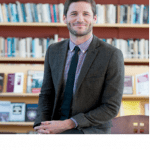 Eoin McGuirk is an Assistant Professor of Economics and Neubauer Faculty Fellow at Tufts University. His research interests are in development and political economics, with a particular focus on the causes and consequences of political violence and social divisions. In his research, he has examined how variation in world food prices can affect the type and location of conflict events in Africa, and how politicians are more likely to perpetuate conflict when they are sheltered from its costs. Most of his research employs natural experiments in order to identify causal relationships. He has Ph.D. in Economics from Trinity College, University of Dublin, and was a Fulbright Scholar at the University of California, Berkeley.
Eoin McGuirk is an Assistant Professor of Economics and Neubauer Faculty Fellow at Tufts University. His research interests are in development and political economics, with a particular focus on the causes and consequences of political violence and social divisions. In his research, he has examined how variation in world food prices can affect the type and location of conflict events in Africa, and how politicians are more likely to perpetuate conflict when they are sheltered from its costs. Most of his research employs natural experiments in order to identify causal relationships. He has Ph.D. in Economics from Trinity College, University of Dublin, and was a Fulbright Scholar at the University of California, Berkeley.






 Nils Grede assumed the position of World Food Programme Representative (WFP) for Turkey in September 2017. Before arriving to Turkey, he was the Representative in El Salvador. Prior to his current position, Mr. Grede gained experience as WFP Deputy Director in Jakarta, Indonesia (2013-2014). He temporarily served as WFP Interim Deputy Director in Brazzaville, Congo (2013) and WFP Interim Country Director in Mbabane, Swaziland (2012-2013). Before that he was Deputy Chief of Nutrition and HIV/AIDS Policy at WFP’s Headquarters. Prior to joining WFP, he was Director of International Recruitment Marketing at Boston Consulting Group (2008 and 2009) and Principal Director at Boston Consulting Group in Los Angeles, California (2001-2005). Mr. Grede is a German national and is fluent in eight languages: German, English, Spanish, French, Italian, Portuguese, Arabic, Hebrew. He is quickly working on improving his Turkish. He holds a Bachelor’s and Master’s degree in Islamic and Middle Eastern Sciences received from the Hebrew University of Jerusalem, Israel. Grede has also received an MBA from Stanford University.
Nils Grede assumed the position of World Food Programme Representative (WFP) for Turkey in September 2017. Before arriving to Turkey, he was the Representative in El Salvador. Prior to his current position, Mr. Grede gained experience as WFP Deputy Director in Jakarta, Indonesia (2013-2014). He temporarily served as WFP Interim Deputy Director in Brazzaville, Congo (2013) and WFP Interim Country Director in Mbabane, Swaziland (2012-2013). Before that he was Deputy Chief of Nutrition and HIV/AIDS Policy at WFP’s Headquarters. Prior to joining WFP, he was Director of International Recruitment Marketing at Boston Consulting Group (2008 and 2009) and Principal Director at Boston Consulting Group in Los Angeles, California (2001-2005). Mr. Grede is a German national and is fluent in eight languages: German, English, Spanish, French, Italian, Portuguese, Arabic, Hebrew. He is quickly working on improving his Turkish. He holds a Bachelor’s and Master’s degree in Islamic and Middle Eastern Sciences received from the Hebrew University of Jerusalem, Israel. Grede has also received an MBA from Stanford University. Felix Schmieding is a Senior Statistician with the World Bank – UNHCR Joint Data Center on Forced Displacement. Earlier work includes assignments with UNHCR, UNDP, and the UN Statistics Division. Felix has implemented or provided technical assistance to numerous statistical activities in Asia, Africa, and the Caribbean – including living conditions surveys, labour force surveys, population censuses, and administrative registers. He has worked closely with the National Statistical Offices and National Statistical Systems of various countries, building technical and institutional capacity. He has also held key roles in global processes aiming at the development of international statistical standards under the auspices of the UN Statistical Commission. Felix has advised on the analysis of multi-dimensional poverty on various occasions, including for the 2012 population census in Rwanda and a 2018 survey of refugees in Kenya. He holds an M.Sc degree from the University of Oxford.
Felix Schmieding is a Senior Statistician with the World Bank – UNHCR Joint Data Center on Forced Displacement. Earlier work includes assignments with UNHCR, UNDP, and the UN Statistics Division. Felix has implemented or provided technical assistance to numerous statistical activities in Asia, Africa, and the Caribbean – including living conditions surveys, labour force surveys, population censuses, and administrative registers. He has worked closely with the National Statistical Offices and National Statistical Systems of various countries, building technical and institutional capacity. He has also held key roles in global processes aiming at the development of international statistical standards under the auspices of the UN Statistical Commission. Felix has advised on the analysis of multi-dimensional poverty on various occasions, including for the 2012 population census in Rwanda and a 2018 survey of refugees in Kenya. He holds an M.Sc degree from the University of Oxford.

 Jonathan Rothbaum is a research economist in the Social, Economic and Housing Statistics Division of the U.S. Census Bureau. He works on the integration of administrative data into the production of income, resource, and wellbeing statistics. His research has focused on nonresponse, measurement error, and data quality in income surveys and on using surveys to study intergenerational mobility in the United States. Prior to joining the Census Bureau in 2013, Rothbaum received his doctorate in economics from George Washington University.
Jonathan Rothbaum is a research economist in the Social, Economic and Housing Statistics Division of the U.S. Census Bureau. He works on the integration of administrative data into the production of income, resource, and wellbeing statistics. His research has focused on nonresponse, measurement error, and data quality in income surveys and on using surveys to study intergenerational mobility in the United States. Prior to joining the Census Bureau in 2013, Rothbaum received his doctorate in economics from George Washington University. Presenter: Ricardo Santos is a Research Fellow of the United Nations University World Institute of Development Economics Research – UNU-WIDER, stationed in Maputo, Mozambique, as Technical Advisor to the Centre of Economics and Management Studies at the Faculty of Economics of Eduardo Mondlane University. His doctoral research examined the post-conflict labour market and education sector in Timor-Leste, looking at the medium-run impact of exposure to violence and conflict produce on the households’ choices regarding education. His recent research has focused on the Mozambican labour market, school-to-work transition and on poverty and inequality. His previous work in the development field includes voluntary work for one year in Timor-Leste as a member of a Portuguese NGO and, Program Manager for Timor-Leste and Angola and Deputy Executive Officer of the same NGO.
Presenter: Ricardo Santos is a Research Fellow of the United Nations University World Institute of Development Economics Research – UNU-WIDER, stationed in Maputo, Mozambique, as Technical Advisor to the Centre of Economics and Management Studies at the Faculty of Economics of Eduardo Mondlane University. His doctoral research examined the post-conflict labour market and education sector in Timor-Leste, looking at the medium-run impact of exposure to violence and conflict produce on the households’ choices regarding education. His recent research has focused on the Mozambican labour market, school-to-work transition and on poverty and inequality. His previous work in the development field includes voluntary work for one year in Timor-Leste as a member of a Portuguese NGO and, Program Manager for Timor-Leste and Angola and Deputy Executive Officer of the same NGO.


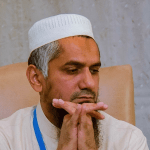

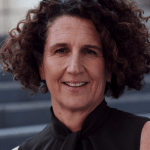
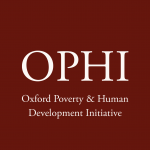


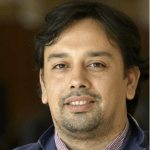




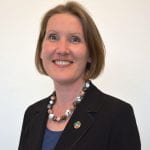








 Kathryn Olivarius is an Assistant Professor of History at Stanford University, where she has taught since 2017. Her research and teaching focus on slavery’s rise and fall in the American South and the wider Atlantic World, disease in the nineteenth century, the history of race and ethnicity, and the social upheaval of the Age of Revolutions. Last year, she was awarded Stanford’s Phi Beta Kappa teaching prize for undergraduate teaching. Before moving to California, she was a Past and Present postdoctoral fellow at the Institute for Historical Research in London. Her book entitled Necropolis: Disease, Power, and Capitalism in the Cotton Kingdom will be published by Harvard University Press in Fall 2021. Her article “Immunity, Power, and Belonging in Antebellum New Orleans,” was published by the American Historical Review last year.
Kathryn Olivarius is an Assistant Professor of History at Stanford University, where she has taught since 2017. Her research and teaching focus on slavery’s rise and fall in the American South and the wider Atlantic World, disease in the nineteenth century, the history of race and ethnicity, and the social upheaval of the Age of Revolutions. Last year, she was awarded Stanford’s Phi Beta Kappa teaching prize for undergraduate teaching. Before moving to California, she was a Past and Present postdoctoral fellow at the Institute for Historical Research in London. Her book entitled Necropolis: Disease, Power, and Capitalism in the Cotton Kingdom will be published by Harvard University Press in Fall 2021. Her article “Immunity, Power, and Belonging in Antebellum New Orleans,” was published by the American Historical Review last year. Martin Saavedra is an Associate Professor of Economics at Oberlin College and earned his PhD in Economics from the University of Pittsburgh in 2014. He primarily works in the fields of economic history, health economics, and labor economics, and his research focuses on the economics of infectious disease, infant health, and the WW2 internment of Japanese Americans. His work has been published in the Journal of Economic History, Explorations in Economic History, the Journal of Economic Literature, among others.
Martin Saavedra is an Associate Professor of Economics at Oberlin College and earned his PhD in Economics from the University of Pittsburgh in 2014. He primarily works in the fields of economic history, health economics, and labor economics, and his research focuses on the economics of infectious disease, infant health, and the WW2 internment of Japanese Americans. His work has been published in the Journal of Economic History, Explorations in Economic History, the Journal of Economic Literature, among others. Dayna Bowen Matthew, JD, PhD, is the Dean and Harold H. Greene Professor of Law at the George Washington University Law School. Dean Matthew is a leader in public health and civil rights law who focuses on racial disparities in health care. She joined the UVA Law faculty in 2017 and is the author of the book Just Medicine: A Cure for Racial Inequality in American Health Care. At UVA, she served as Co-Founder and Inaugural Director of The Equity Center, a transdisciplinary research center that seeks to build better relationships between UVA and the Charlottesville community through community-engaged scholarship that tangibly redresses racial and socioeconomic inequality.
Dayna Bowen Matthew, JD, PhD, is the Dean and Harold H. Greene Professor of Law at the George Washington University Law School. Dean Matthew is a leader in public health and civil rights law who focuses on racial disparities in health care. She joined the UVA Law faculty in 2017 and is the author of the book Just Medicine: A Cure for Racial Inequality in American Health Care. At UVA, she served as Co-Founder and Inaugural Director of The Equity Center, a transdisciplinary research center that seeks to build better relationships between UVA and the Charlottesville community through community-engaged scholarship that tangibly redresses racial and socioeconomic inequality.
 Bina Agarwal is Professor of Development Economics and Environment at the Global Development Institute, University of Manchester, UK, and former Professor and Director, Institute of Economic Growth, Delhi. She has been President, International Society for Ecological Economics; Vice-President, International Economic Association; President, International Society for Feminist Economics; and held distinguished positions at the Universities of Cambridge, Harvard, Princeton, Michigan, Minnesota, and the New York University School of Law. Dr. Agarwal’s publications include the multiple award-winning book, A Field of One’s Own: Gender and Land Rights in South Asia (Cambridge University Press, 1994), Gender and Green Governance (OUP, 2010) and Gender Challenges (OUP, 2016), a three volume compendium of her selected papers on Agriculture, Property, and the Environment. Her pioneering work on gender inequality in property and land and on environmental governance, has had global impact. Her many awards include a Padma Shri, 2008; book prizes; the Leontief Prize 2010; Louis Malassis Scientific Prize 2017; and the International Balzan Prize, 2017.
Bina Agarwal is Professor of Development Economics and Environment at the Global Development Institute, University of Manchester, UK, and former Professor and Director, Institute of Economic Growth, Delhi. She has been President, International Society for Ecological Economics; Vice-President, International Economic Association; President, International Society for Feminist Economics; and held distinguished positions at the Universities of Cambridge, Harvard, Princeton, Michigan, Minnesota, and the New York University School of Law. Dr. Agarwal’s publications include the multiple award-winning book, A Field of One’s Own: Gender and Land Rights in South Asia (Cambridge University Press, 1994), Gender and Green Governance (OUP, 2010) and Gender Challenges (OUP, 2016), a three volume compendium of her selected papers on Agriculture, Property, and the Environment. Her pioneering work on gender inequality in property and land and on environmental governance, has had global impact. Her many awards include a Padma Shri, 2008; book prizes; the Leontief Prize 2010; Louis Malassis Scientific Prize 2017; and the International Balzan Prize, 2017. Ajay Chhibber is a Distinguished Visiting Scholar, Institute of International Economic Policy, George Washington University and Non-Resident Senior Fellow, the Atlantic Council, Washington DC. He was earlier Director General, Independent Evaluation Office, Government of India and Distinguished Visiting Professor at the National Institute of Public Finance and Policy (NIPFP), India. He held senior positions at the UN as Assistant Secretary General and Assistant Administrator, UNDP and managed their program for Asia and the Pacific. He also served in senior positions at the World Bank. He has a PhD from Stanford University, a Masters from the Delhi School of Economics. He taught at Georgetown University and at the University of Delhi.
Ajay Chhibber is a Distinguished Visiting Scholar, Institute of International Economic Policy, George Washington University and Non-Resident Senior Fellow, the Atlantic Council, Washington DC. He was earlier Director General, Independent Evaluation Office, Government of India and Distinguished Visiting Professor at the National Institute of Public Finance and Policy (NIPFP), India. He held senior positions at the UN as Assistant Secretary General and Assistant Administrator, UNDP and managed their program for Asia and the Pacific. He also served in senior positions at the World Bank. He has a PhD from Stanford University, a Masters from the Delhi School of Economics. He taught at Georgetown University and at the University of Delhi. James E. Foster is the Oliver T. Carr, Jr. Professor of International Affairs, Professor of Economics, and Co-Director of the Institute for International Economic Policy at the George Washington University. He is also a Research Associate at the Oxford Poverty and Human Development Initiative at Oxford University. Professor Foster’s research focuses on welfare economics — using economic tools to evaluate and enhance the wellbeing of people. His joint 1984 Econometrica paper (with Joel Greer and Erik Thorbecke) is one of the most cited papers on poverty. It introduced the FGT Index, which has been used in thousands of studies and was employed in targeting the Progresa CCT program in Mexico. Other research includes work on economic inequality with Amartya Sen; on the distribution of human development with Luis Felipe Lopez-Calva and Miguel Szekely; on multidimensional poverty with Sabina Alkire; and on literacy with Kaushik Basu.
James E. Foster is the Oliver T. Carr, Jr. Professor of International Affairs, Professor of Economics, and Co-Director of the Institute for International Economic Policy at the George Washington University. He is also a Research Associate at the Oxford Poverty and Human Development Initiative at Oxford University. Professor Foster’s research focuses on welfare economics — using economic tools to evaluate and enhance the wellbeing of people. His joint 1984 Econometrica paper (with Joel Greer and Erik Thorbecke) is one of the most cited papers on poverty. It introduced the FGT Index, which has been used in thousands of studies and was employed in targeting the Progresa CCT program in Mexico. Other research includes work on economic inequality with Amartya Sen; on the distribution of human development with Luis Felipe Lopez-Calva and Miguel Szekely; on multidimensional poverty with Sabina Alkire; and on literacy with Kaushik Basu. Viral V. Acharya is the C.V. Starr Professor of Economics in the Department of Finance at New York University Stern School of Business (NYU-Stern) and an Academic Advisor to the Federal Reserve Banks of New York and Philadelphia. Viral was a Deputy Governor at the Reserve Bank of India (RBI) during 23rd January 2017 to 23rd July 2019 in charge of Monetary Policy, Financial Markets, Financial Stability, and Research. His speeches while at the RBI will release in the end of July 2020 in the form of a book titled “Quest for Restoring Financial Stability in India” (SAGE Publications India), with a new introductory chapter “Fiscal Dominance: A Theory of Everything in India”. Viral completed Bachelor of Technology in Computer Science and Engineering from Indian Institute of Technology, Mumbai in 1995 and Ph.D. in Finance from NYU-Stern in 2001. Prior to joining Stern, he was at London Business School (2001-2008), the Academic Director of the Coller Institute of Private Equity at LBS (2007-09) and a Senior Houblon-Normal Research Fellow at the Bank of England (Summer 2008). Viral’s primary research interest is in theoretical and empirical analysis of systemic risk of the financial sector, its regulation and its genesis in government-induced distortions, an inquiry that cuts across several other strands of research – credit risk and liquidity risk, their interactions and agency-theoretic foundations, as well as their general equilibrium consequences. He has published articles in the American Economic Review, Journal of Finance, Journal of Financial Economics, Review of Financial Studies, Review of Finance, Journal of Business, Journal of Financial Intermediation, Rand Journal of Economics, Journal of Monetary Economics, Journal of Money, Credit and Banking, and Financial Analysts Journal. He is currently associate editor of the Review of Corporate Finance Studies (RCFS, 2011-) and Review of Finance (2006-), and was an editor of the Journal of Financial Intermediation (2009-12) and associate editor of the Journal of Finance (2011-14).
Viral V. Acharya is the C.V. Starr Professor of Economics in the Department of Finance at New York University Stern School of Business (NYU-Stern) and an Academic Advisor to the Federal Reserve Banks of New York and Philadelphia. Viral was a Deputy Governor at the Reserve Bank of India (RBI) during 23rd January 2017 to 23rd July 2019 in charge of Monetary Policy, Financial Markets, Financial Stability, and Research. His speeches while at the RBI will release in the end of July 2020 in the form of a book titled “Quest for Restoring Financial Stability in India” (SAGE Publications India), with a new introductory chapter “Fiscal Dominance: A Theory of Everything in India”. Viral completed Bachelor of Technology in Computer Science and Engineering from Indian Institute of Technology, Mumbai in 1995 and Ph.D. in Finance from NYU-Stern in 2001. Prior to joining Stern, he was at London Business School (2001-2008), the Academic Director of the Coller Institute of Private Equity at LBS (2007-09) and a Senior Houblon-Normal Research Fellow at the Bank of England (Summer 2008). Viral’s primary research interest is in theoretical and empirical analysis of systemic risk of the financial sector, its regulation and its genesis in government-induced distortions, an inquiry that cuts across several other strands of research – credit risk and liquidity risk, their interactions and agency-theoretic foundations, as well as their general equilibrium consequences. He has published articles in the American Economic Review, Journal of Finance, Journal of Financial Economics, Review of Financial Studies, Review of Finance, Journal of Business, Journal of Financial Intermediation, Rand Journal of Economics, Journal of Monetary Economics, Journal of Money, Credit and Banking, and Financial Analysts Journal. He is currently associate editor of the Review of Corporate Finance Studies (RCFS, 2011-) and Review of Finance (2006-), and was an editor of the Journal of Financial Intermediation (2009-12) and associate editor of the Journal of Finance (2011-14). Liaquat Ahamed is the author of the critically acclaimed best-seller, Lords of Finance: The Bankers Who Broke the World, about central bankers during the Great Depression of 1929-1932. The book won the 2010 Pulitzer Prize for History, the 2010 Council on Foreign Relations Arthur Ross Gold Medal, and the 2009 Financial Times-Goldman Sachs Best Business Book of the Year Award. Ahamed was a professional investment manager for twenty-five years. He has worked at the World Bank in Washington, D.C., and the New York-based partnership of Fischer Francis Trees and Watts, where he served as chief executive. He is currently a director of the Putnam Funds. He is on the board of trustees of the Journal of Philosophy, the Sun Valley Writers’ Conference and a former trustee of the Brookings Institution and the New America Foundation. He has degrees in economics from Harvard and Cambridge.
Liaquat Ahamed is the author of the critically acclaimed best-seller, Lords of Finance: The Bankers Who Broke the World, about central bankers during the Great Depression of 1929-1932. The book won the 2010 Pulitzer Prize for History, the 2010 Council on Foreign Relations Arthur Ross Gold Medal, and the 2009 Financial Times-Goldman Sachs Best Business Book of the Year Award. Ahamed was a professional investment manager for twenty-five years. He has worked at the World Bank in Washington, D.C., and the New York-based partnership of Fischer Francis Trees and Watts, where he served as chief executive. He is currently a director of the Putnam Funds. He is on the board of trustees of the Journal of Philosophy, the Sun Valley Writers’ Conference and a former trustee of the Brookings Institution and the New America Foundation. He has degrees in economics from Harvard and Cambridge. Rakesh Mohan is one of India’s senior-most economic policymakers and an expert on central banking, monetary policy, infrastructure and urban affairs. Most recently he was executive director at the International Monetary Fund in Washington, D.C., representing India, Sri Lanka, Bangladesh and Bhutan, and chairman, National Transport Development Policy Committee, Government of India, in the rank of a Minister of State. He is also a former deputy governor of the Reserve Bank of India. As deputy governor he was in charge of monetary policy, financial markets, economic research and statistics. In addition to serving in various posts for the Indian government, including representing India in a variety of international forums such as Basel and G20, Mohan has worked for the World Bank and headed prestigious research institutes. He is also Senior Advisor to the McKinsey Global Institute and Distinguished Fellow of Brookings India. Mohan has written extensively on urban economics, urban development, Indian economic policy reforms, monetary policy and central banking.
Rakesh Mohan is one of India’s senior-most economic policymakers and an expert on central banking, monetary policy, infrastructure and urban affairs. Most recently he was executive director at the International Monetary Fund in Washington, D.C., representing India, Sri Lanka, Bangladesh and Bhutan, and chairman, National Transport Development Policy Committee, Government of India, in the rank of a Minister of State. He is also a former deputy governor of the Reserve Bank of India. As deputy governor he was in charge of monetary policy, financial markets, economic research and statistics. In addition to serving in various posts for the Indian government, including representing India in a variety of international forums such as Basel and G20, Mohan has worked for the World Bank and headed prestigious research institutes. He is also Senior Advisor to the McKinsey Global Institute and Distinguished Fellow of Brookings India. Mohan has written extensively on urban economics, urban development, Indian economic policy reforms, monetary policy and central banking. Sabina Alkire directs the Oxford Poverty and Human Development Initiative (OPHI), a research centre within the Oxford Department of International Development, University of Oxford. Dr Alkire works on a new approach to measuring poverty and well-being that goes beyond the traditional focus on income and growth. This multidimensional approach to measurement includes social goals, such as health, education, nutrition, standard of living and other valuable aspects of life. She devised a new method for measuring multidimensional poverty with her colleague James Foster (OPHI Research Associate and Professor of Economics at George Washington University) that has advantages over other poverty measures and has been adopted by the Mexican Government, the Bhutanese Government in their ‘Gross National Happiness Index’ and the United Nations Development Programme. Dr Alkire has been called upon to provide input and advice to several initiatives seeking to take a broader approach to well-being rather than just economic growth, for example, the Commission on the Measurement of Economic Performance and Social Progress (instigated by President Sarkozy); the United Nations Human Development Programme Human Development Report Office; the European Commission; and the UK’s Department for International Development.
Sabina Alkire directs the Oxford Poverty and Human Development Initiative (OPHI), a research centre within the Oxford Department of International Development, University of Oxford. Dr Alkire works on a new approach to measuring poverty and well-being that goes beyond the traditional focus on income and growth. This multidimensional approach to measurement includes social goals, such as health, education, nutrition, standard of living and other valuable aspects of life. She devised a new method for measuring multidimensional poverty with her colleague James Foster (OPHI Research Associate and Professor of Economics at George Washington University) that has advantages over other poverty measures and has been adopted by the Mexican Government, the Bhutanese Government in their ‘Gross National Happiness Index’ and the United Nations Development Programme. Dr Alkire has been called upon to provide input and advice to several initiatives seeking to take a broader approach to well-being rather than just economic growth, for example, the Commission on the Measurement of Economic Performance and Social Progress (instigated by President Sarkozy); the United Nations Human Development Programme Human Development Report Office; the European Commission; and the UK’s Department for International Development. Ajay Chhibber is Distinguished Visiting Scholar, Institute of International Economic Policy, Elliott School of International Affairs, George Washington University and Non-Resident Senior Fellow, the Atlantic Council, Washington DC. He is Chief Economic Advisor, Federation of Indian Chambers of Commerce and Industry (FICCI). He was earlier the first Director General ( Minister of State) , Independent Evaluation Office, Government of India and Distinguished Visiting Professor at the National Institute of Public Finance and Policy (NIPFP), India – affiliated institute of the Ministry of Finance – where he completed a major study on India’s Public Sector Enterprises. He held senior positions at the UN as Assistant Secretary General and Assistant Administrator, UNDP and managed their program for Asia and the Pacific. At the World Bank he served as Country Director in Turkey and Vietnam and Division Chief for Indonesia and the Pacific and Lead Economist, West Africa Department. He was also Director of the 1997 World Development Report on the Role of the State. He also worked in the World Bank’s Research Department, as Advisor to the Chief Economist of the World Bank and at the Public Economics Division. He has a Ph.D from Stanford University, a Masters from the Delhi School of Economics. He also has attended advanced management programs at the Harvard Business School, Harvard University and INSEAD, France. He taught at Georgetown University and at the University of Delhi. He has published widely including 5 books in development economics, and is a contributor (columnist) to several newspapers. He is now writing a book on “India: A Reset for the 21st Century” under contract with Harper-Collins.
Ajay Chhibber is Distinguished Visiting Scholar, Institute of International Economic Policy, Elliott School of International Affairs, George Washington University and Non-Resident Senior Fellow, the Atlantic Council, Washington DC. He is Chief Economic Advisor, Federation of Indian Chambers of Commerce and Industry (FICCI). He was earlier the first Director General ( Minister of State) , Independent Evaluation Office, Government of India and Distinguished Visiting Professor at the National Institute of Public Finance and Policy (NIPFP), India – affiliated institute of the Ministry of Finance – where he completed a major study on India’s Public Sector Enterprises. He held senior positions at the UN as Assistant Secretary General and Assistant Administrator, UNDP and managed their program for Asia and the Pacific. At the World Bank he served as Country Director in Turkey and Vietnam and Division Chief for Indonesia and the Pacific and Lead Economist, West Africa Department. He was also Director of the 1997 World Development Report on the Role of the State. He also worked in the World Bank’s Research Department, as Advisor to the Chief Economist of the World Bank and at the Public Economics Division. He has a Ph.D from Stanford University, a Masters from the Delhi School of Economics. He also has attended advanced management programs at the Harvard Business School, Harvard University and INSEAD, France. He taught at Georgetown University and at the University of Delhi. He has published widely including 5 books in development economics, and is a contributor (columnist) to several newspapers. He is now writing a book on “India: A Reset for the 21st Century” under contract with Harper-Collins. Monica Pinilla-Roncancio is a Physiotherapist with a Master’s degree in Economics from Universidad del Rosario. She has also a Master’s degree in Health Economics, Policy and Law from Erasmus University Rotterdam, Netherlands. She finished her PhD in Social Policy at the University of Birmingham, UK. From 2016 to 2018 she was as a Postdoctoral Researcher at Universidad de los Andes and currently is an Assistant Professor at the same university. She is the Co-director of Metrics and Policy at OPHI and has been working in OPHI since 2014. She coordinates the work in Latin America, East Asia and some countries in Africa and Middle East. Her main research interest are disability, multidimensional poverty, inequality and health economics.
Monica Pinilla-Roncancio is a Physiotherapist with a Master’s degree in Economics from Universidad del Rosario. She has also a Master’s degree in Health Economics, Policy and Law from Erasmus University Rotterdam, Netherlands. She finished her PhD in Social Policy at the University of Birmingham, UK. From 2016 to 2018 she was as a Postdoctoral Researcher at Universidad de los Andes and currently is an Assistant Professor at the same university. She is the Co-director of Metrics and Policy at OPHI and has been working in OPHI since 2014. She coordinates the work in Latin America, East Asia and some countries in Africa and Middle East. Her main research interest are disability, multidimensional poverty, inequality and health economics. Frances Stewart was Director of ODID from 1993-2003 and Director of the Centre for Research on Inequality, Human Security and Ethnicity (CRISE) at the department between 2003 and 2010. She has a DPhil from the University of Oxford and an honorary doctorate from the University of Sussex. Among many publications, she is coauthor of UNICEF’s influential study, Adjustment with a Human Face (OUP 1987); War and Underdevelopment (OUP 2001); and leading author and editor of Horizontal Inequalities and Conflict: Understanding Group Violence in Multiethnic Societies (Palgrave, 2008). She has directed a number of major research programmes including several financed by the UK Government’s Department for International Development, and others by the Swedish Development Agency and the Carnegie Corporation. An Emeritus Fellow of Somerville College, Oxford, Frances has acted as consultant for early Human Development Reports; she has been President of the Human Development and Capability Association; President of the British and Irish Development Studies Association; Chair of the United Nations Committee on Development Policy and Vice-Chair of the Board of the International Food Policy Research Institute. She received the Leontief prize in 2013 for advancing the frontiers of economic thought from Tufts University. She was given the UNDP’s Mahbub ul Haq award for her lifetime’s achievements in promoting human development in 2009; and named one of fifty outstanding technological leaders for 2003 by Scientific American (Policy Leader in Economic Development Strategies for promoting anti-poverty campaigns to help quell armed conflicts in developing countries).
Frances Stewart was Director of ODID from 1993-2003 and Director of the Centre for Research on Inequality, Human Security and Ethnicity (CRISE) at the department between 2003 and 2010. She has a DPhil from the University of Oxford and an honorary doctorate from the University of Sussex. Among many publications, she is coauthor of UNICEF’s influential study, Adjustment with a Human Face (OUP 1987); War and Underdevelopment (OUP 2001); and leading author and editor of Horizontal Inequalities and Conflict: Understanding Group Violence in Multiethnic Societies (Palgrave, 2008). She has directed a number of major research programmes including several financed by the UK Government’s Department for International Development, and others by the Swedish Development Agency and the Carnegie Corporation. An Emeritus Fellow of Somerville College, Oxford, Frances has acted as consultant for early Human Development Reports; she has been President of the Human Development and Capability Association; President of the British and Irish Development Studies Association; Chair of the United Nations Committee on Development Policy and Vice-Chair of the Board of the International Food Policy Research Institute. She received the Leontief prize in 2013 for advancing the frontiers of economic thought from Tufts University. She was given the UNDP’s Mahbub ul Haq award for her lifetime’s achievements in promoting human development in 2009; and named one of fifty outstanding technological leaders for 2003 by Scientific American (Policy Leader in Economic Development Strategies for promoting anti-poverty campaigns to help quell armed conflicts in developing countries). Ricardo Nogales is a Research Officer at OPHI since May 2018. He holds a BSc. and a MSc. In Economics and a PhD in Econometrics, all from the University of Geneva (Switzerland). Before joining OPHI, he was a Professor of Economics at the School of Economics and Finance of the Universidad Privada Boliviana in Bolivia and a Research Assistant at the United Nations Research Institute for Social Development (UNRISD) in Switzerland. He carried on research activities in the field of development economics, poverty reduction and human development with the IDB, UNDP, ILO, World Bank, Oxfam and IDRC. He has been an external consultant for several public organizations in Bolivia, including the Program for Strategic Research, the Central Bank, the Institute for Agricultural Insurance and the Ministry of Economics and Public Finance.
Ricardo Nogales is a Research Officer at OPHI since May 2018. He holds a BSc. and a MSc. In Economics and a PhD in Econometrics, all from the University of Geneva (Switzerland). Before joining OPHI, he was a Professor of Economics at the School of Economics and Finance of the Universidad Privada Boliviana in Bolivia and a Research Assistant at the United Nations Research Institute for Social Development (UNRISD) in Switzerland. He carried on research activities in the field of development economics, poverty reduction and human development with the IDB, UNDP, ILO, World Bank, Oxfam and IDRC. He has been an external consultant for several public organizations in Bolivia, including the Program for Strategic Research, the Central Bank, the Institute for Agricultural Insurance and the Ministry of Economics and Public Finance. Dean Jolliffe is a Lead Economist in the Development Data Group of the World Bank and member of the LSMS-ISA team. He has extensive experience in the design and implementation of household surveys and is currently managing ongoing LSMS-ISA work in Ethiopia. He has also worked in the South Asia region at the Bank on poverty assessments for Afghanistan, Bangladesh and Nepal. Previously, he was a Research Economist at the Economic Research Service of USDA, an Adjunct Professor at the Johns Hopkins University School of Advanced International Studies, an Assistant Professor at the Center for Economic Research and Graduate Education in Prague, and a Post-doctoral Fellow at the International Food Policy Research Institute. Dean holds appointments as a Research Fellow with the Institute for the Study of Labor in Bonn, and as a Research Affiliate with the National Poverty Center at the University of Michigan. He received his Ph.D. in economics from Princeton University.
Dean Jolliffe is a Lead Economist in the Development Data Group of the World Bank and member of the LSMS-ISA team. He has extensive experience in the design and implementation of household surveys and is currently managing ongoing LSMS-ISA work in Ethiopia. He has also worked in the South Asia region at the Bank on poverty assessments for Afghanistan, Bangladesh and Nepal. Previously, he was a Research Economist at the Economic Research Service of USDA, an Adjunct Professor at the Johns Hopkins University School of Advanced International Studies, an Assistant Professor at the Center for Economic Research and Graduate Education in Prague, and a Post-doctoral Fellow at the International Food Policy Research Institute. Dean holds appointments as a Research Fellow with the Institute for the Study of Labor in Bonn, and as a Research Affiliate with the National Poverty Center at the University of Michigan. He received his Ph.D. in economics from Princeton University. Jennifer G. Cooke is director of the Institute for African Studies at The George Washington University Elliott School of International Affairs. The Institute serves as central for research, scholarly discussion, and debate on issues relevant to Africa. She is a professor of practice in international affairs, teaching courses on U.S. Policy Toward Africa and Transnational Security Threats in Africa. Cooke joined George Washington University in August 2018, after 18 years as director of the Africa Program at the Center for Strategic and International Studies (CSIS), where she led research and analysis on political, economic, and security dynamics in Africa. While at CSIS, Cooke directed projects on a wide range of African issues, including on violent extremist organizations in the Sahel and Lake Chad Basin, China’s growing role in Africa, democracy and elections in Nigeria, religion and state authority in Africa, “stress-testing” state stability in Africa, Africa’s changing energy landscape, and more. She is a frequent writer and lecturer on U.S.-Africa policy and has provided briefing, commentary, and testimony to the media, US Congress, AFRICOM leadership and the U.S. military. She has traveled widely in Africa and has been an election observer in Sierra Leone, Ghana, Liberia, Mali, and Nigeria. As a teenager, she lived in Cote d’Ivoire and the Central African Republic. She holds an M.A. in African studies and international economics from the Johns Hopkins University School of Advanced International Studies (SAIS) and a B.A. in government, magna cum laude, from Harvard University.
Jennifer G. Cooke is director of the Institute for African Studies at The George Washington University Elliott School of International Affairs. The Institute serves as central for research, scholarly discussion, and debate on issues relevant to Africa. She is a professor of practice in international affairs, teaching courses on U.S. Policy Toward Africa and Transnational Security Threats in Africa. Cooke joined George Washington University in August 2018, after 18 years as director of the Africa Program at the Center for Strategic and International Studies (CSIS), where she led research and analysis on political, economic, and security dynamics in Africa. While at CSIS, Cooke directed projects on a wide range of African issues, including on violent extremist organizations in the Sahel and Lake Chad Basin, China’s growing role in Africa, democracy and elections in Nigeria, religion and state authority in Africa, “stress-testing” state stability in Africa, Africa’s changing energy landscape, and more. She is a frequent writer and lecturer on U.S.-Africa policy and has provided briefing, commentary, and testimony to the media, US Congress, AFRICOM leadership and the U.S. military. She has traveled widely in Africa and has been an election observer in Sierra Leone, Ghana, Liberia, Mali, and Nigeria. As a teenager, she lived in Cote d’Ivoire and the Central African Republic. She holds an M.A. in African studies and international economics from the Johns Hopkins University School of Advanced International Studies (SAIS) and a B.A. in government, magna cum laude, from Harvard University. Andrew Tiffin is a senior economist at the IMF, working in the regional studies division of the Fund’s African Department. He is also keenly involved in the effort to incorporate artificial intelligence/machine-learning techniques into the standard analytical toolkit of the Fund. Previously, he has worked on Middle Eastern countries, with a particular interest in refugee issues in Jordan and Lebanon, as well as numerous countries in Europe–he was part of the Italy team during the debt crisis of 2012, and part of the Russia team for the global financial crisis of 2008. Raised in Sydney, Andrew is an Australian national. He received his post-graduate training at Princeton University, where he obtained both a Ph.D. in economics and an M.P.A. in international relations. In addition to his work with the Fund, Andrew has held positions at the Reserve Bank of Australia, and with the Australian Government.
Andrew Tiffin is a senior economist at the IMF, working in the regional studies division of the Fund’s African Department. He is also keenly involved in the effort to incorporate artificial intelligence/machine-learning techniques into the standard analytical toolkit of the Fund. Previously, he has worked on Middle Eastern countries, with a particular interest in refugee issues in Jordan and Lebanon, as well as numerous countries in Europe–he was part of the Italy team during the debt crisis of 2012, and part of the Russia team for the global financial crisis of 2008. Raised in Sydney, Andrew is an Australian national. He received his post-graduate training at Princeton University, where he obtained both a Ph.D. in economics and an M.P.A. in international relations. In addition to his work with the Fund, Andrew has held positions at the Reserve Bank of Australia, and with the Australian Government. Louise Fox is an experienced development economist who specializes in strategies for employment creation, opportunity expansion, economic empowerment, and poverty reduction. She has advised governments in the developed and developing world, international organizations, and philanthropic and non-profit organizations on problem diagnosis, strategies for results, and outcome measurement. She held full-time positions at USAID (as Chief Economist) and at the World Bank. She is currently affiliated with the African Growth Initiative at the Brookings Institution and the Blum Center for Developing Economies, University of California, Berkeley. She was previously affiliated with the Overseas Development Institute, where she led a major research project. Louise has published in the areas of inclusive growth, structural transformation, youth employment, the political economy of poverty reduction, gender and women’s economic empowerment, employment, labor markets, and labor regulation, pension reform, reform of child welfare systems, social protection, effective public expenditures in the social sectors, and female-headed households and child welfare. Her most recent book was Youth Employment in Sub-Saharan Africa, published by the World Bank in 2014.
Louise Fox is an experienced development economist who specializes in strategies for employment creation, opportunity expansion, economic empowerment, and poverty reduction. She has advised governments in the developed and developing world, international organizations, and philanthropic and non-profit organizations on problem diagnosis, strategies for results, and outcome measurement. She held full-time positions at USAID (as Chief Economist) and at the World Bank. She is currently affiliated with the African Growth Initiative at the Brookings Institution and the Blum Center for Developing Economies, University of California, Berkeley. She was previously affiliated with the Overseas Development Institute, where she led a major research project. Louise has published in the areas of inclusive growth, structural transformation, youth employment, the political economy of poverty reduction, gender and women’s economic empowerment, employment, labor markets, and labor regulation, pension reform, reform of child welfare systems, social protection, effective public expenditures in the social sectors, and female-headed households and child welfare. Her most recent book was Youth Employment in Sub-Saharan Africa, published by the World Bank in 2014. Seung Mo Choi is a Senior Economist working on regional surveillance in the IMF’s African Department. He has worked on banking crises, financial market policies, climate change, low-income country issues, and capacity development, including in the IMF’s European Department and in the Institute for Capacity Development. His research has been published in economics and finance journals such as International Economic Review. Prior to joining the IMF, he worked as an Assistant Professor at Washington State University and obtained a Ph.D. in economics from the University of Chicago and a B.A. in economics from Seoul National University.
Seung Mo Choi is a Senior Economist working on regional surveillance in the IMF’s African Department. He has worked on banking crises, financial market policies, climate change, low-income country issues, and capacity development, including in the IMF’s European Department and in the Institute for Capacity Development. His research has been published in economics and finance journals such as International Economic Review. Prior to joining the IMF, he worked as an Assistant Professor at Washington State University and obtained a Ph.D. in economics from the University of Chicago and a B.A. in economics from Seoul National University. Stephen C. Smith is Professor of Economics and International Affairs at George Washington University. In 2018 he was UNICEF Senior Fellow at the UNICEF Office of Research-Innocenti, Florence, Italy. Smith received his Ph.D. in Economics from Cornell University and has been a Fulbright Research Scholar, a Jean Monnet Research Fellow, a Visiting Fellow at the Brookings Institution, a Nonresident Senior Fellow at Brookings, a Fulbright Senior Specialist, a member of the Advisory Council of BRAC USA, and an Associate Editor of the Journal of Economic Behavior and Organization. He has twice served as Director of the Institute for International Economic Policy at GWU. Smith is the co-author with Michael Todaro of Economic Development (12th Edition, Pearson, 2014). He is also author of Ending Global Poverty: A Guide to What Works (paperback edition Palgrave Macmillan, 2009), and co-editor with Jennifer Brinkerhoff and Hildy Teegen of NGOs and the Millennium Development Goals: Citizen Action to Reduce Poverty (Palgrave Macmillan, 2007). He is also author or coauthor of about 45 professional journal articles and many other publications. Smith’s recent research has focused on extreme poverty and strategies and programs to address it; and on the economics of adaptation and resilience to climate change in low-income countries, emphasizing autonomous adaptation by households and communities and its effects, and adaptation financing.
Stephen C. Smith is Professor of Economics and International Affairs at George Washington University. In 2018 he was UNICEF Senior Fellow at the UNICEF Office of Research-Innocenti, Florence, Italy. Smith received his Ph.D. in Economics from Cornell University and has been a Fulbright Research Scholar, a Jean Monnet Research Fellow, a Visiting Fellow at the Brookings Institution, a Nonresident Senior Fellow at Brookings, a Fulbright Senior Specialist, a member of the Advisory Council of BRAC USA, and an Associate Editor of the Journal of Economic Behavior and Organization. He has twice served as Director of the Institute for International Economic Policy at GWU. Smith is the co-author with Michael Todaro of Economic Development (12th Edition, Pearson, 2014). He is also author of Ending Global Poverty: A Guide to What Works (paperback edition Palgrave Macmillan, 2009), and co-editor with Jennifer Brinkerhoff and Hildy Teegen of NGOs and the Millennium Development Goals: Citizen Action to Reduce Poverty (Palgrave Macmillan, 2007). He is also author or coauthor of about 45 professional journal articles and many other publications. Smith’s recent research has focused on extreme poverty and strategies and programs to address it; and on the economics of adaptation and resilience to climate change in low-income countries, emphasizing autonomous adaptation by households and communities and its effects, and adaptation financing. Preya Sharma is a senior economist in the African Department of the IMF where she is Special Assistant to the Director. Her research has focused on structural transformation, the future of work, and digitalization in sub-Saharan Africa, as well as emerging market crises and development. Before joining the IMF she was the Head of Emerging Markets at HM Treasury in the UK. She holds a Masters in Public Administration in International Development from the Harvard Kennedy School and a BSc in Economics from the London School of Economics.
Preya Sharma is a senior economist in the African Department of the IMF where she is Special Assistant to the Director. Her research has focused on structural transformation, the future of work, and digitalization in sub-Saharan Africa, as well as emerging market crises and development. Before joining the IMF she was the Head of Emerging Markets at HM Treasury in the UK. She holds a Masters in Public Administration in International Development from the Harvard Kennedy School and a BSc in Economics from the London School of Economics.


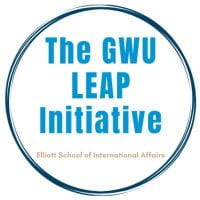








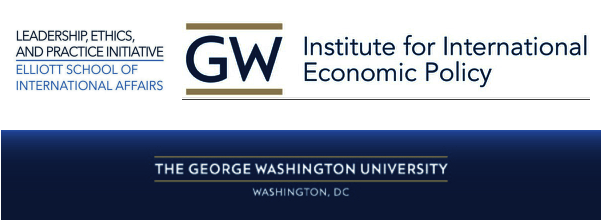
 Steve Hollingworth
Steve Hollingworth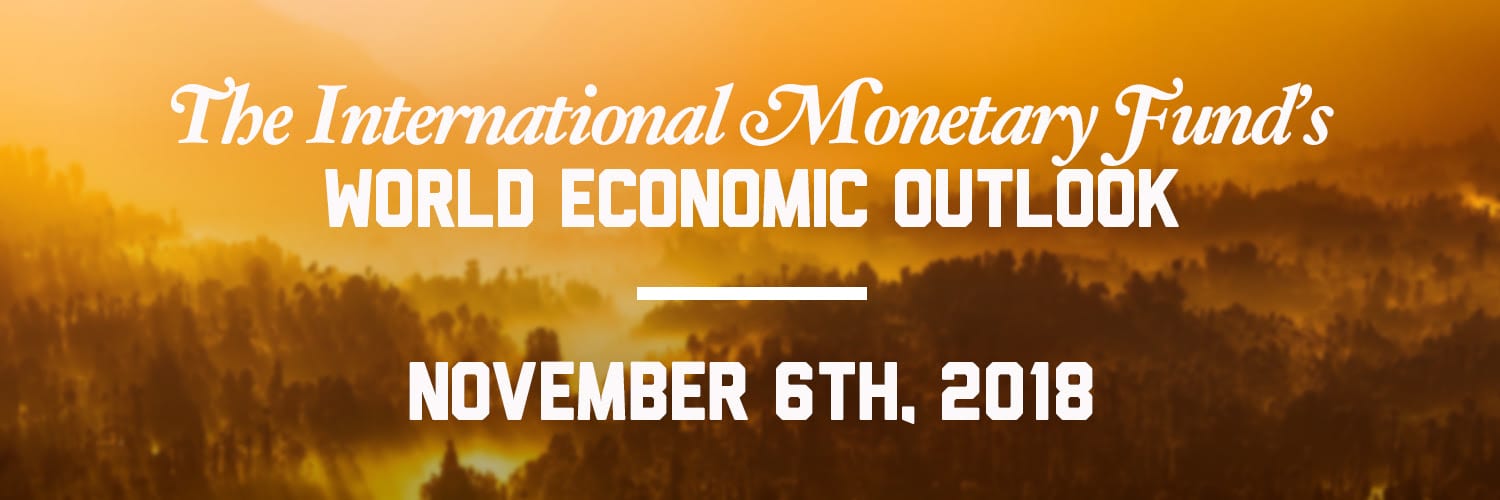

 Faruque Ahmed is the executive director of BRAC International. He previously held the position of senior director at BRAC International. He is also a member of the executive management committee.
Faruque Ahmed is the executive director of BRAC International. He previously held the position of senior director at BRAC International. He is also a member of the executive management committee.